Hello and welcome to Work Week, the podcast where we answer one big question about the rapidly evolving workplace, explore what the research says about the topic, and explain what it all means for you.
I’m Dr. Gabby Burlacu, Senior Manager at The Upwork Research Institute. What you’re hearing is a digital proxy of my voice created by our team with the help of AI.
Today we’re diving into a shift that’s redefining how organizations access and engage executives by asking the question: What’s driving the shift toward fractional C-suite roles?
If you are part of the workforce, you’ve probably felt the pressure to adapt to business needs that are changing increasingly fast. And if you handle hiring or finances, you’ve also likely had to balance budget constraints with the expectation of engaging highly qualified talent.
To respond to these challenges at the highest levels, organizations are exploring new ways to access experienced leaders and executives while staying within their budgets. A method that is becoming increasingly common is engaging them on a contract or part-time basis — also known as fractional C-suite roles.
Consider the most common mental model of a “traditional executive.” To some extent, they are the embodiment of the company they work for, espousing the values and culture of the organization. And they've earned their spot through a long career, often working long hours week in and week out.
Now consider that organizations are increasingly accessing skilled senior-level workers on a fractional basis. What are the new signifiers of commitment and leadership strength in this new paradigm? Looking at these roles in this way represents a fundamental shift in how organizations think about leadership, agility, and workforce design.
Let's start with the data.
A recently released survey from outplacement firm Challenger, Gray & Christmas shows that thirty-three percent of CEOs appointed in the first half of twenty twenty-five were placed on an interim basis. This is a significant increase from only nine percent the previous year. Andy Challenger, the firm’s senior vice president, used the term the “CEO gig economy” to describe the growing number of leaders choosing short-term roles over permanent executive positions.
CEOs aren’t the only executives taking on fractional roles — positions across the C-suite are increasingly being filled by fractional roles. Fractional Chief Financial Officers help startups prepare for audits and investor meetings. Fractional Chief Marketing Officers develop brand identities, demand generation engines, and go-to-market plans. And fractional Chief People Officers implement talent development strategies and navigate complex workforce restructures.
As Challenger noted in an interview with CBS News, some of these leaders left their roles after navigating organizations through the pandemic. They are now returning to work — on their own terms.
Instead of looking for full-time, long-term roles, they are instead opting for short-term contracts with more flexibility and purpose.
And companies, especially those that are high-growth or resource-constrained, are finding this model incredibly attractive.
For example, consider a fast-scaling startup that raises a Series B round of funding. The lean team needs to build out a marketing strategy or improve the efficiency of their business operations. But hiring a full-time chief marketing officer or chief operating officer is a multi-six figure commitment — which the organization is not yet ready for.
Enter the fractional executive who can step in for ten to fifteen hours a week or on a short-term project basis. This fractional leader can build the infrastructure and strategy, coach the team, and phase out once the system is running smoothly. Or, if the company has the resources for a permanent position after the contract ends, the team can hire the executive on a permanent basis.
Startups and small businesses aren’t the only companies that can benefit from engaging fractional leaders. Larger companies can turn to fractional leaders to fill temporary gaps — such as parental leave, medical leave, sabbaticals, or during periods of more formal executive search. Instead of pausing strategic progress while a seat is vacant, companies can engage a fractional executive to keep critical business initiatives moving forward.
How these leaders are positioning themselves is also interesting. These aren’t stopgap consultants. They’re acting as embedded leaders, holding accountability, reporting to boards, mentoring teams, and making high-stakes decisions. They may only be in the role for a limited time, but their contributions can be as impactful as a full-time executive.
This shift challenges the long-standing assumption that leadership must be full-time to be effective. And the success fractional leaders are bringing to the organizations willing to take them on shows that it’s an assumption worth challenging.
This is a win-win scenario. Businesses are finding increased agility, affordability, and access to seasoned talent. And the executives are benefiting from increased autonomy, flexibility, and the ability to have meaningful impact across multiple organizations.
To better understand the impact of fractional C-suite roles, let’s consider a fractional CMO’s success story.
Mike Volkin is a marketing executive and author with nearly two decades of experience. As a fractional CMO, Mike has consulted for more than one thousand businesses across thirty-six industries — ranging from startups to global enterprises. By offering his expertise on a fractional basis, he gives organizations the benefit of his proven, high-impact marketing strategies and execution — without the costs or commitment of a full-time CMO or marketing agency.
This success story is just one of many examples showcasing how experienced executives are taking on fractional roles or projects — while also driving career growth and positive business outcomes.
As we discussed in episode two of Work Week, Gen Z is turning away from traditional nine-to-five jobs in favor of portfolio careers. This shift is likely to continue as Gen Z workers gain more experience and grow into corporate-level roles.
And, in episode eleven of Work Week, we covered how organizations can address retirement-driven skills gaps. As Baby Boomers reach retirement age, many still want to work — but on a more flexible schedule. By keeping senior-level workers on board on a fractional basis, organizations can benefit from retaining their expertise and institutional knowledge while supporting their desire for flexibility.
While some leaders may still see freelance relationships as purely transactional and limited to one-off projects or clearly defined deliverables, this mindset is outdated. Top-performing, forward-thinking organizations understand the strategic role freelancers can play in their organizational structure.
As organizations take a more proactive, strategic approach to integrating senior-level freelancers, this also leads to a shift in how outcomes are defined. Full-time executives are often measured by their long-term stewardship. But fractional executives are judged by velocity and results. Did they hit a milestone? Did they unblock a key initiative? It’s a more agile, performance-based model — and one that mirrors how much of today’s knowledge work is changing.
Of course, this model isn’t without its complexities.
Fractional executives need to navigate boundaries. They need to ask themselves: What’s in scope? How much authority do they really have? How do they balance loyalty across multiple clients? And for companies, the challenge is integration. How do you onboard someone into the C-suite who isn’t around full-time? How do you align them with your culture and values?
The good news is that these challenges are solvable. And the opportunities fractional leadership presents far outway the challenges.
So much so that some companies may consider building their organization around this model. They’ll retain a lean executive core that is supplemented with fractional leaders who rotate in based on business needs. It’s workforce fluidity at the highest level — and an approach that can help businesses stay resilient in an unpredictable business environment.
The fractional C-suite trend isn’t a blip. It’s a leading indicator of a much bigger transformation — from rigid hierarchies to modular leadership. From fixed roles to dynamic engagements. From permanent titles to purpose-driven impact.
As we do in every episode, let’s wrap up with an action step you can take immediately and a reflection question to consider.
Your action step this week is two parts. First, look at your leadership pipeline and outline opportunities to engage fractional executives. Where are the pressure points? Are some roles too big for a manager but not quite ready for a full-time executive? Is there a leave coming up that could stall progress? Identify one area where a fractional leader could have a significant positive impact — and outline what success would look like. You may be surprised by how quickly the case for a fractional C-suite role becomes clear.
The second part of your action item is to take inventory of your own skills and identify opportunities to explore fractional roles or projects. If you’re interested in improved flexibility, increased autonomy, supplemental income, or access to more diverse and impactful work, a fractional C-suite role may be right for you.
For this week’s reflection question, ask yourself: What would it look like to design leadership around impact, not hours?
The future of work will be shaped by how leadership shows up — flexibly, intentionally, and in the way that’s needed to drive progress. Whether your organization is looking for new ways to scale or you’re an executive considering this path, the shift toward fractional C-suite roles can have a positive impact.
That’s a wrap on this week’s episode of Work Week. I’m Gabby Burlacu and if this episode sparked some ideas, share it with a colleague or leave us a review. And be sure to subscribe for more insights on how the world of work is transforming.







.png)
.png)
.png)
.png)
.png)
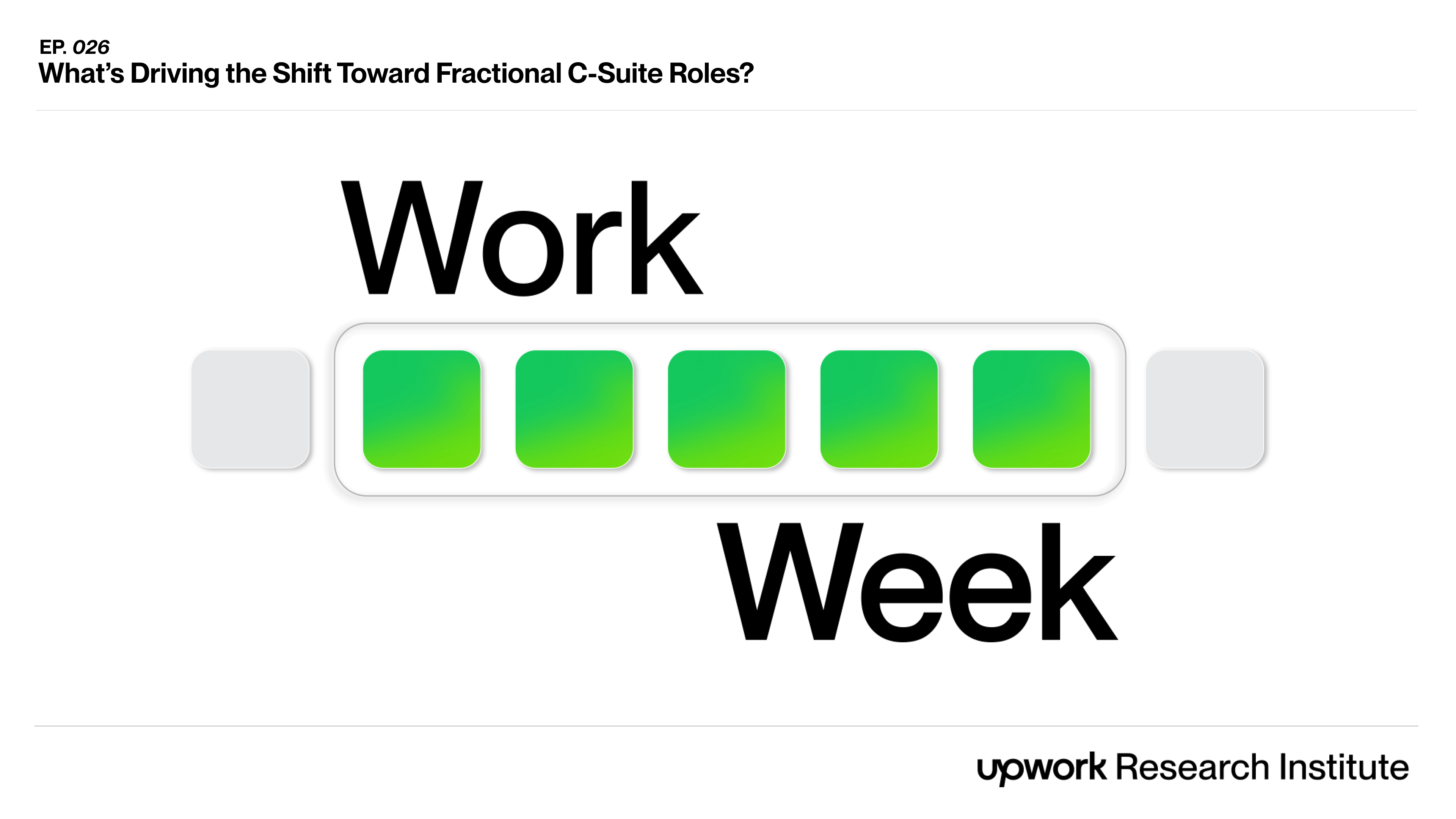


.png)

-p-500.jpg.png)

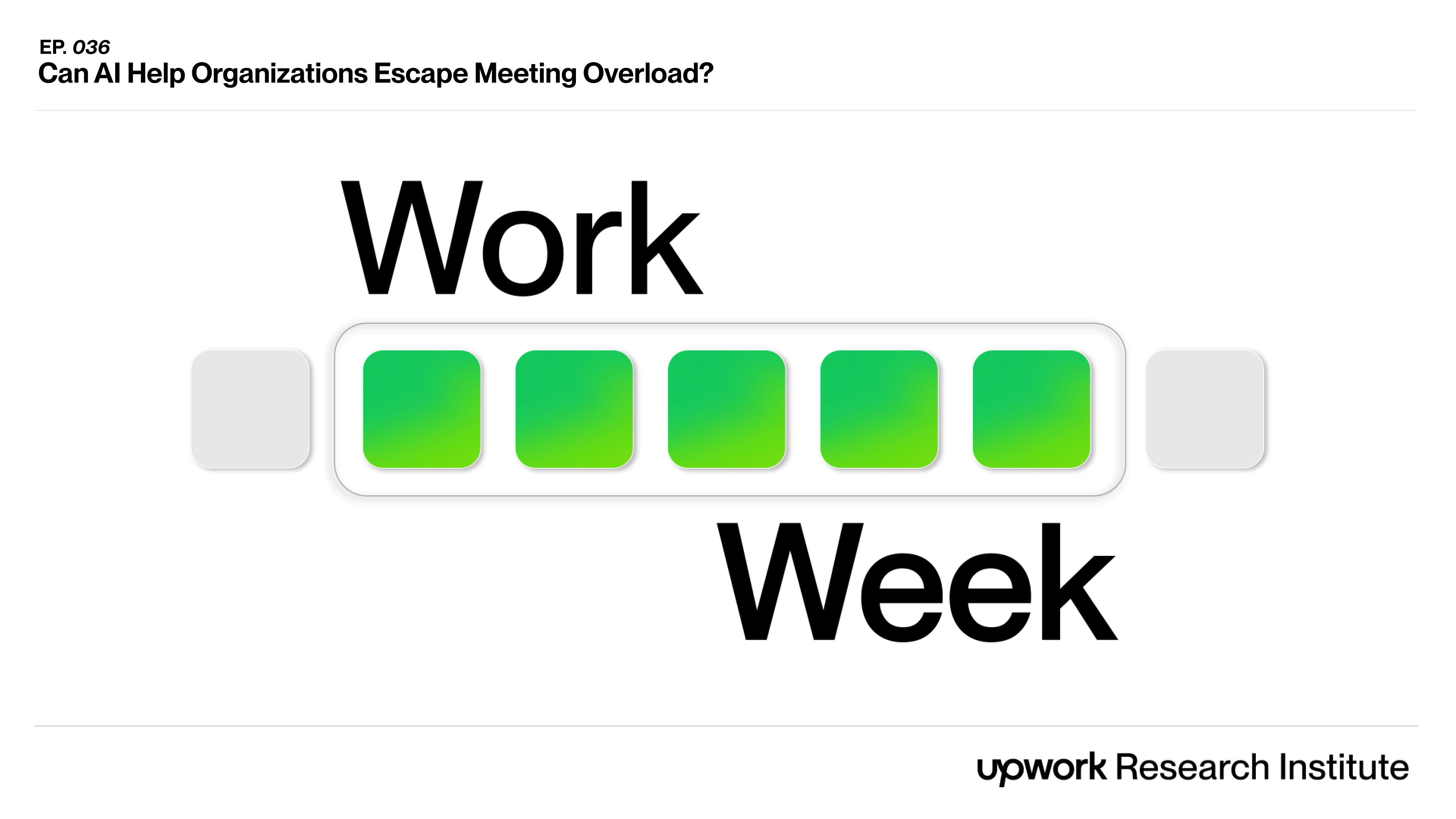

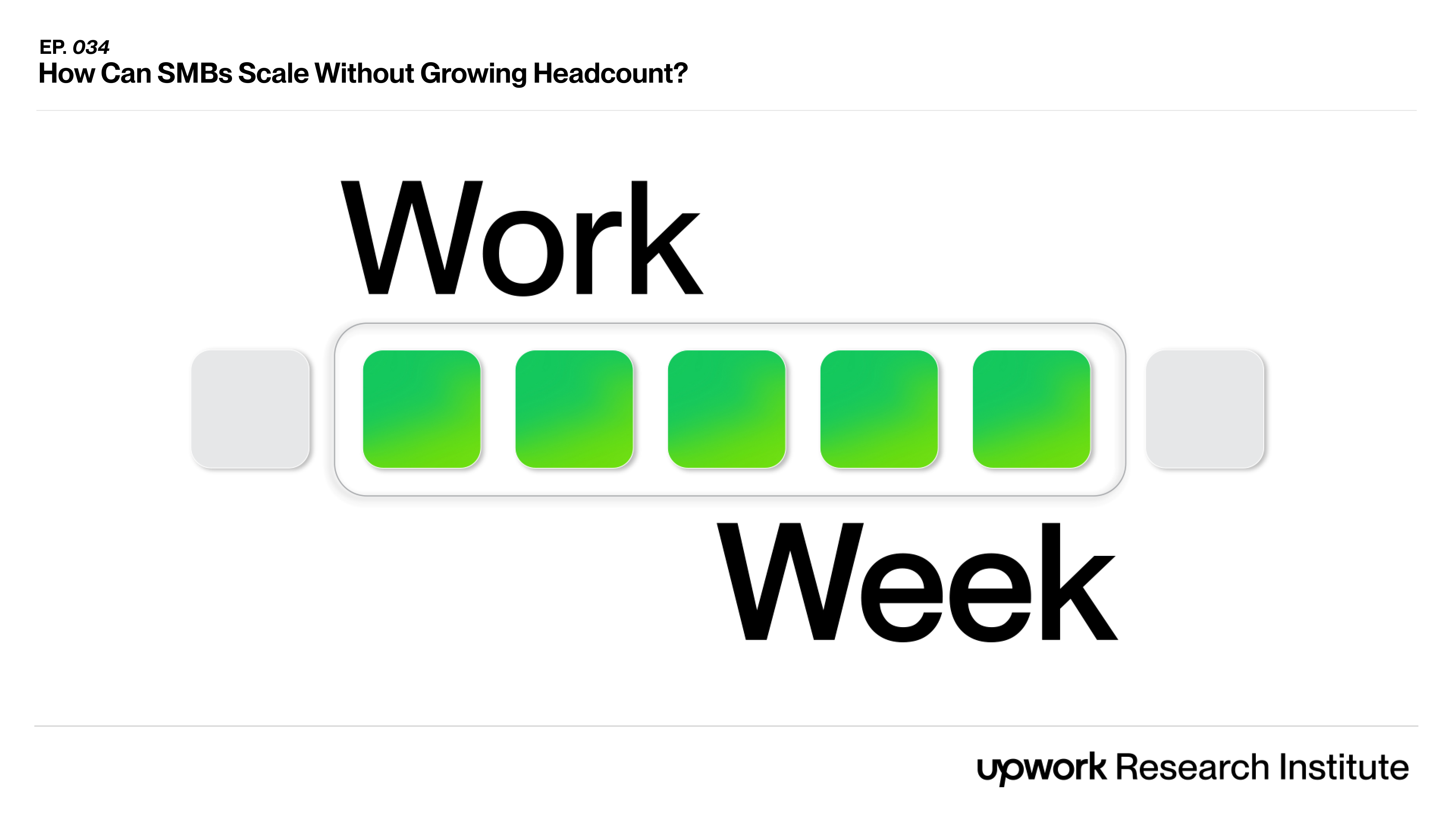
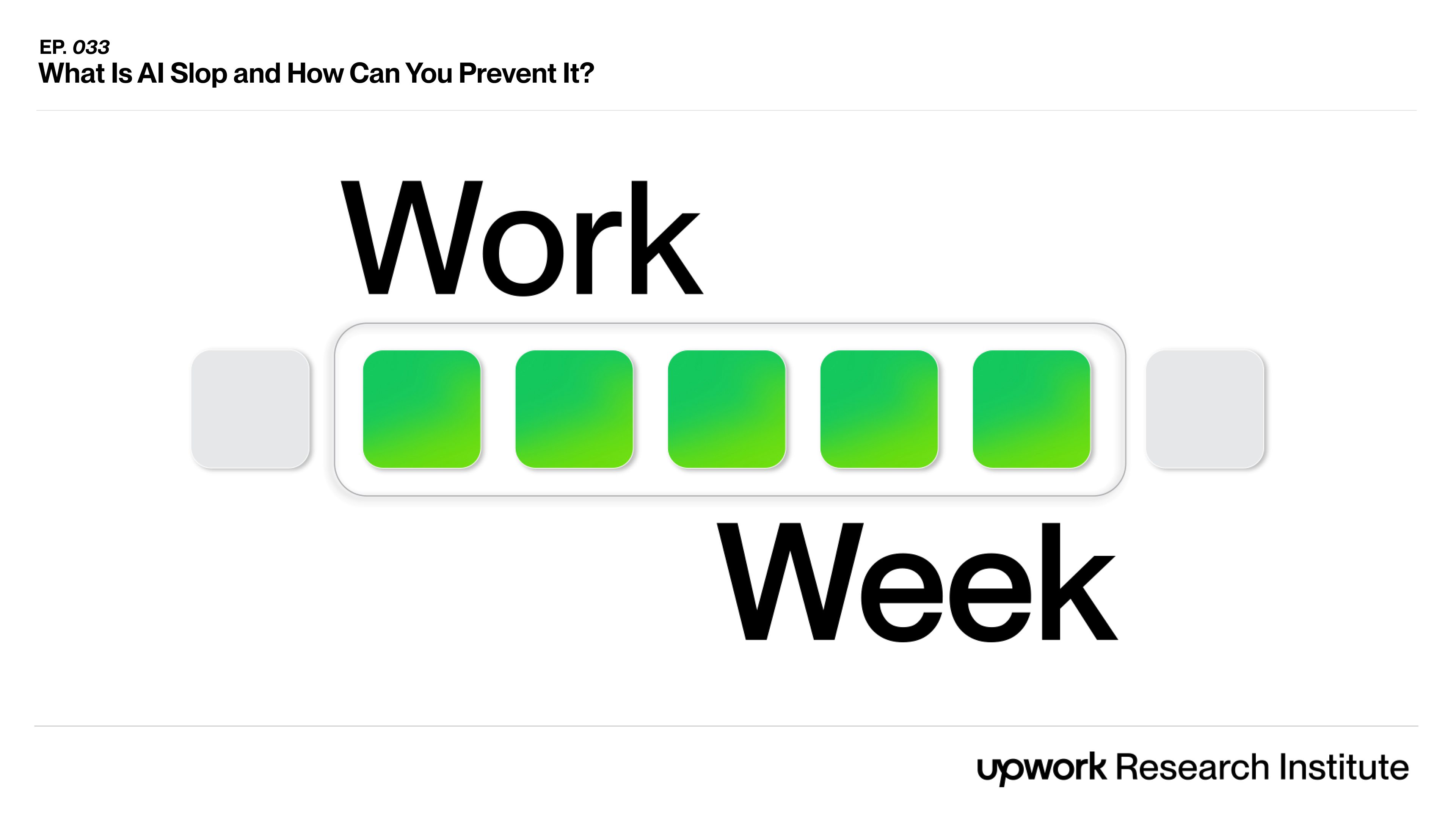
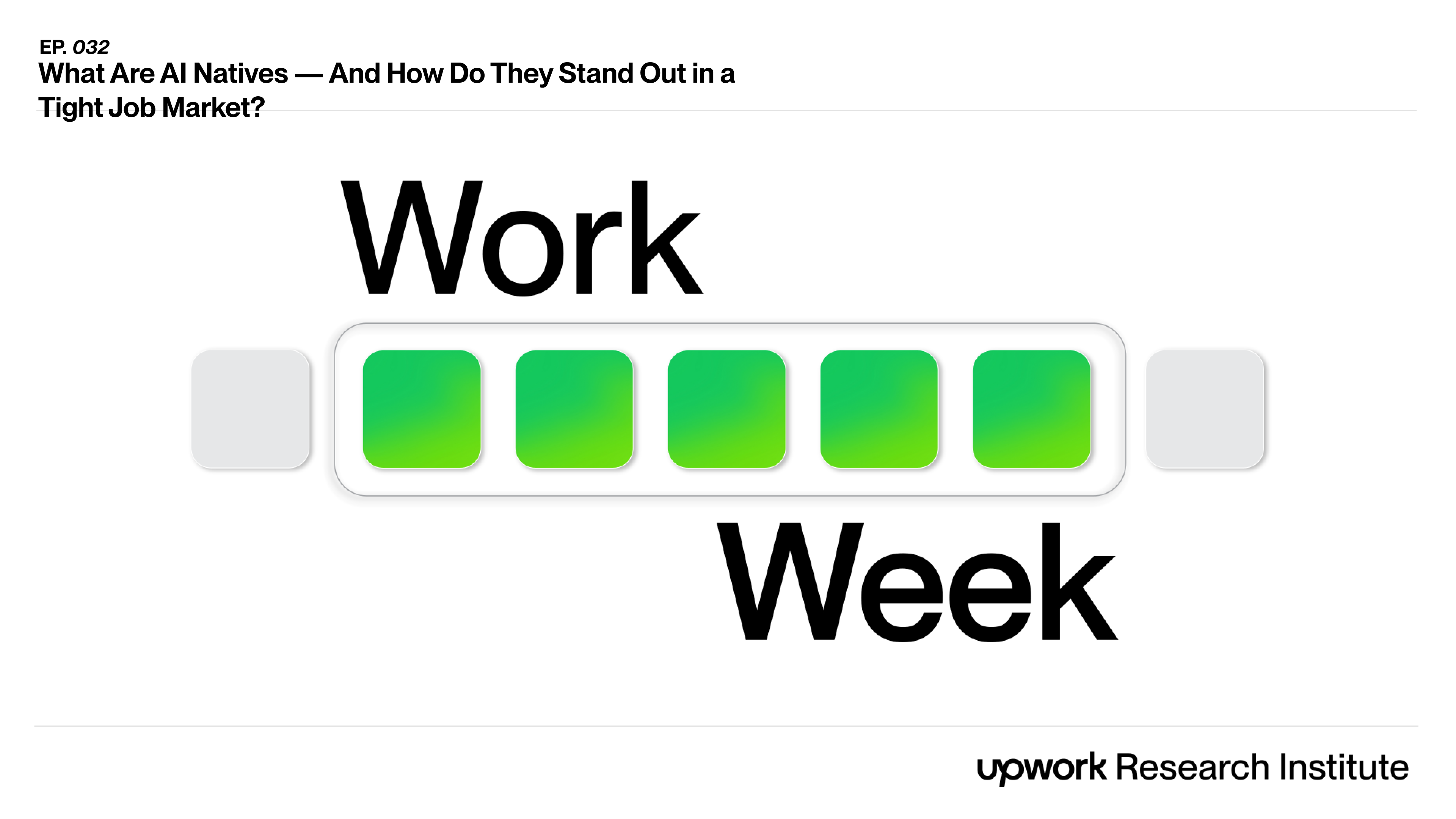
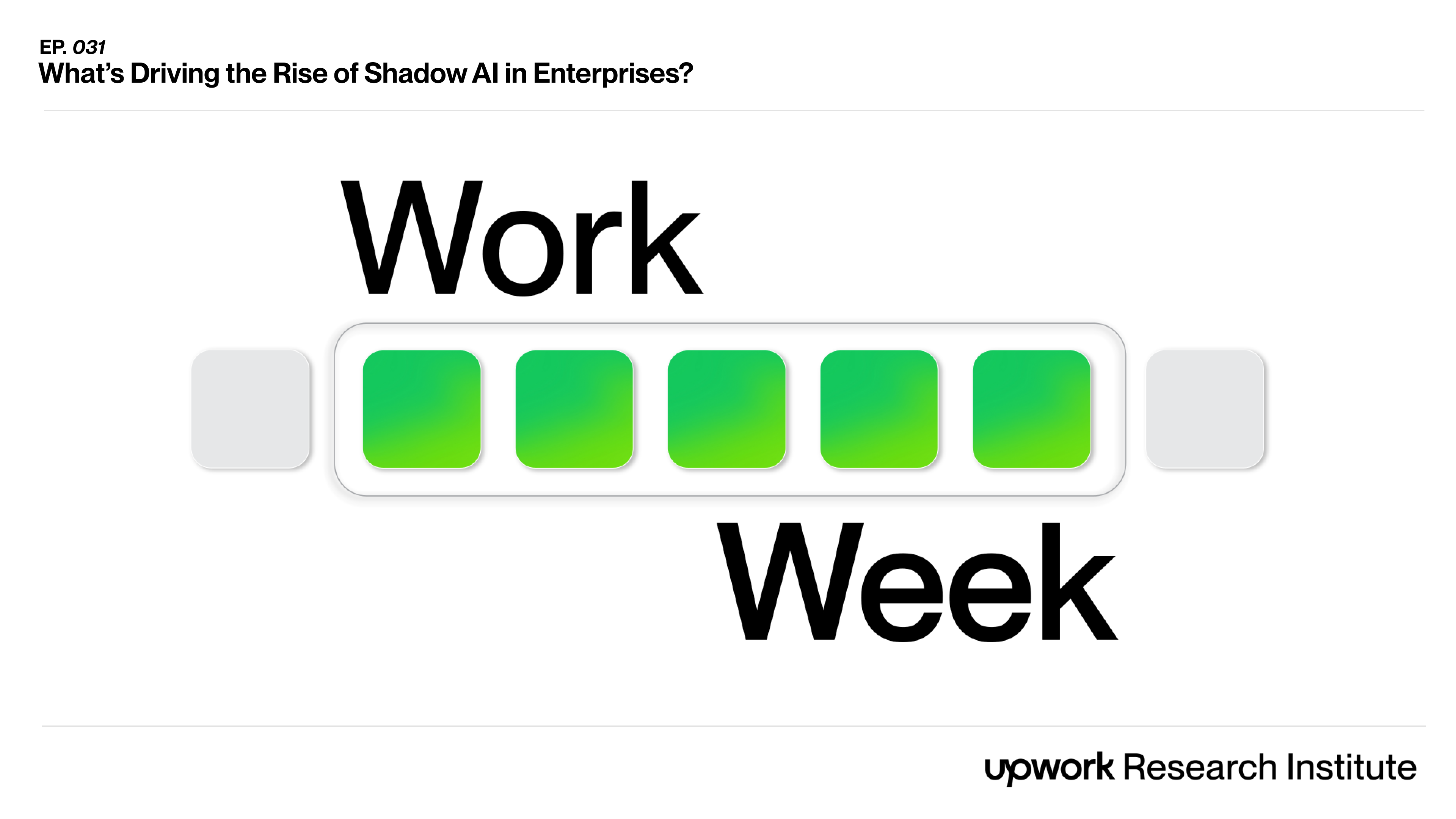
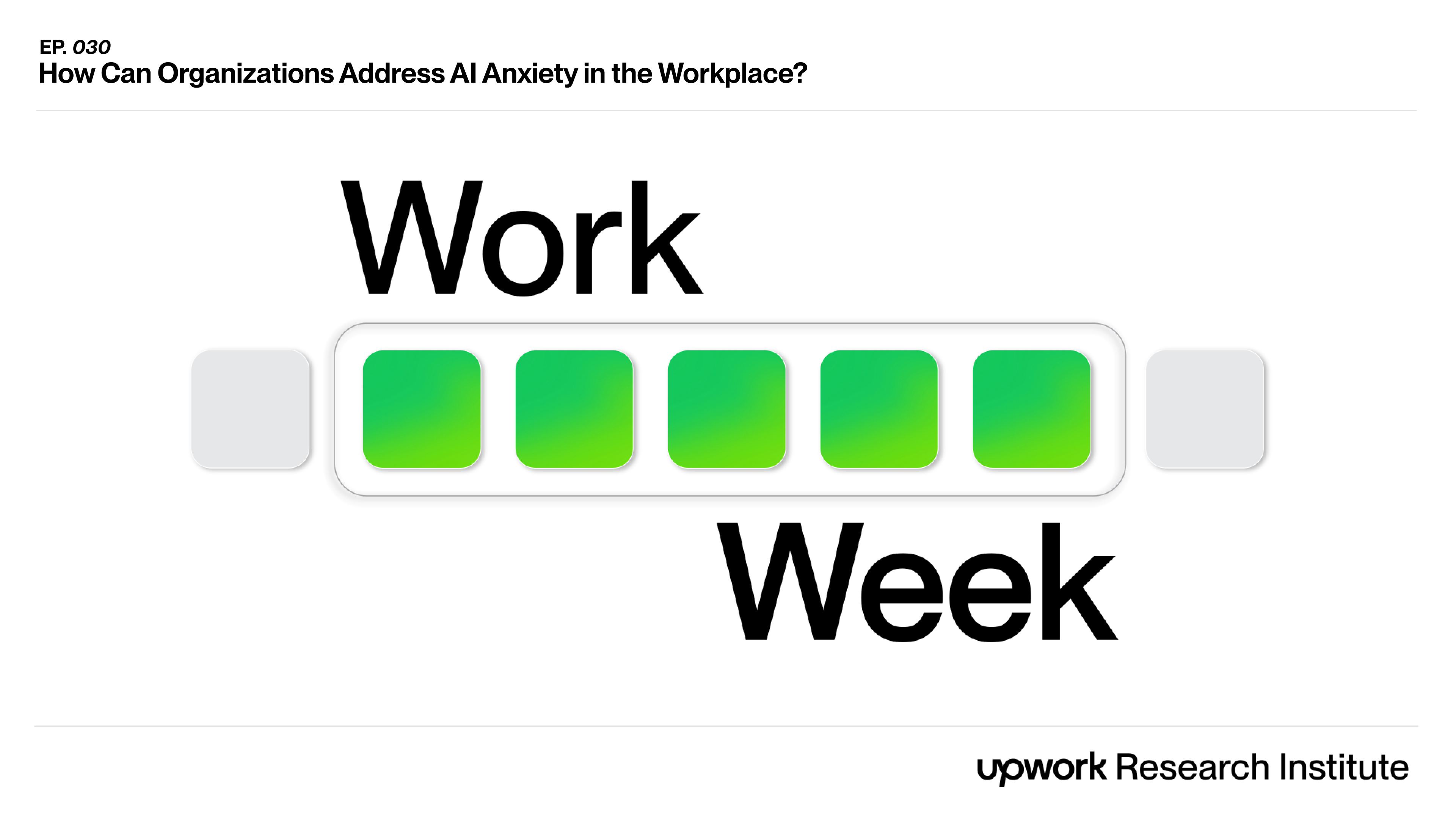
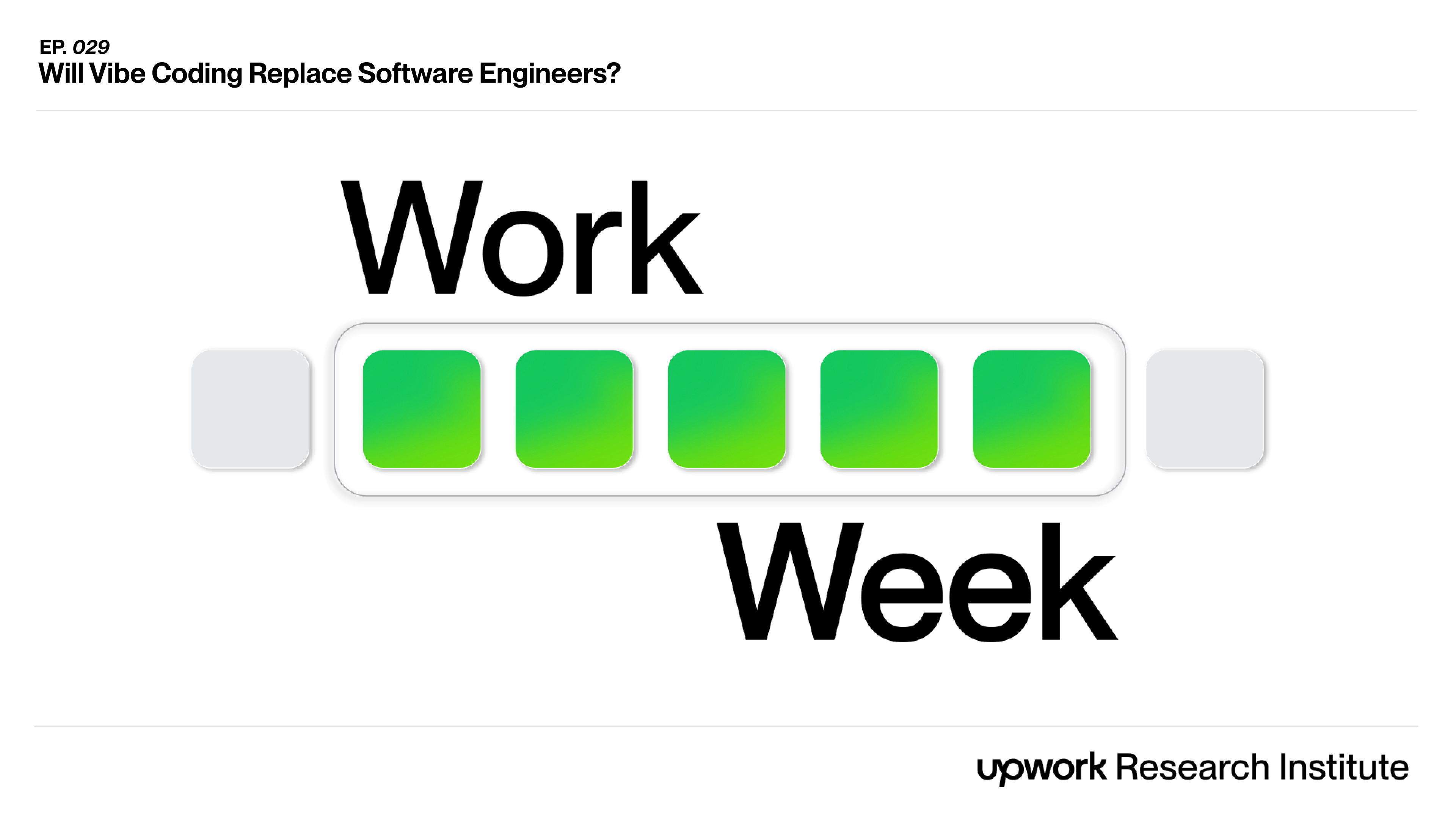
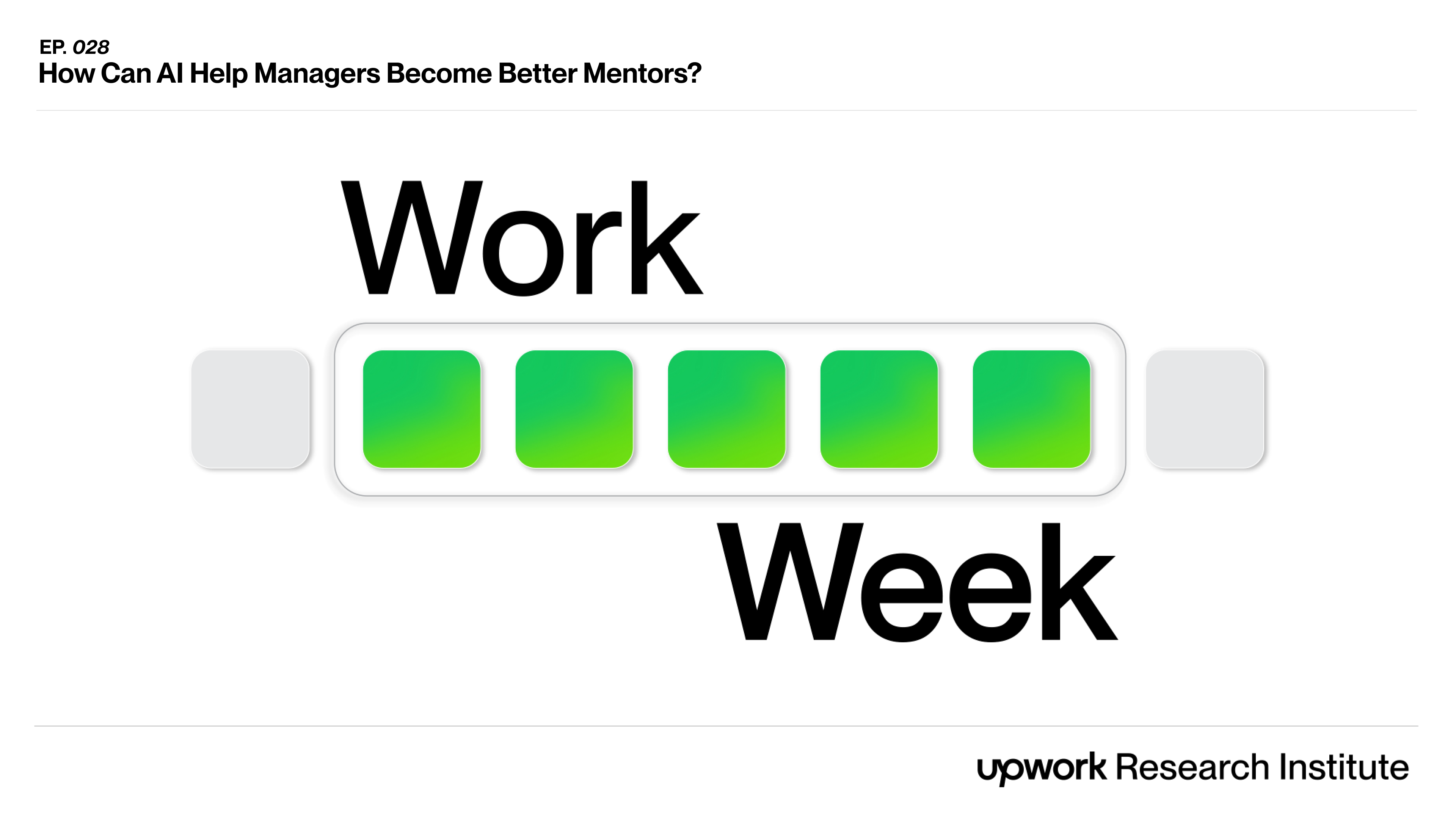

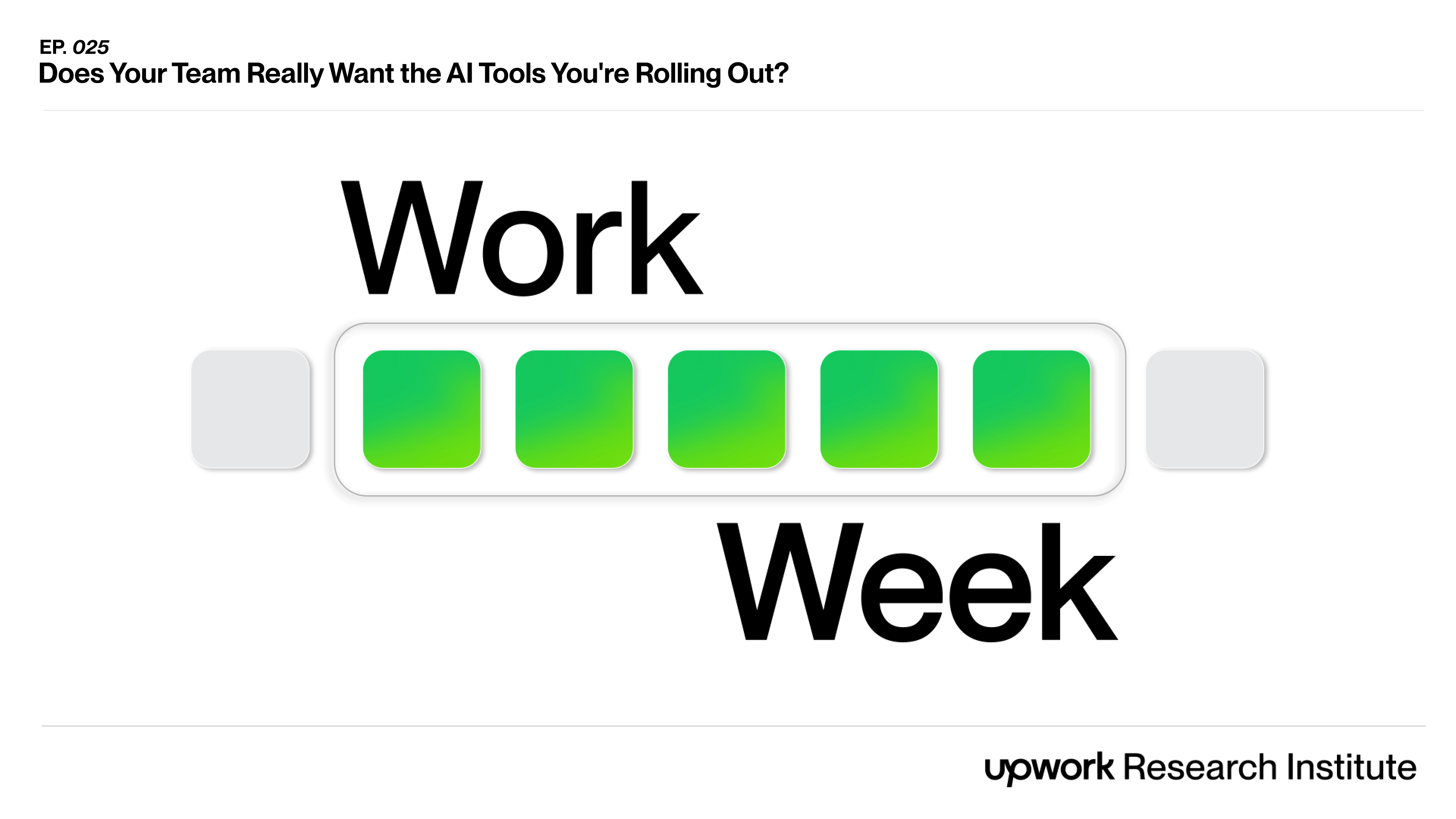
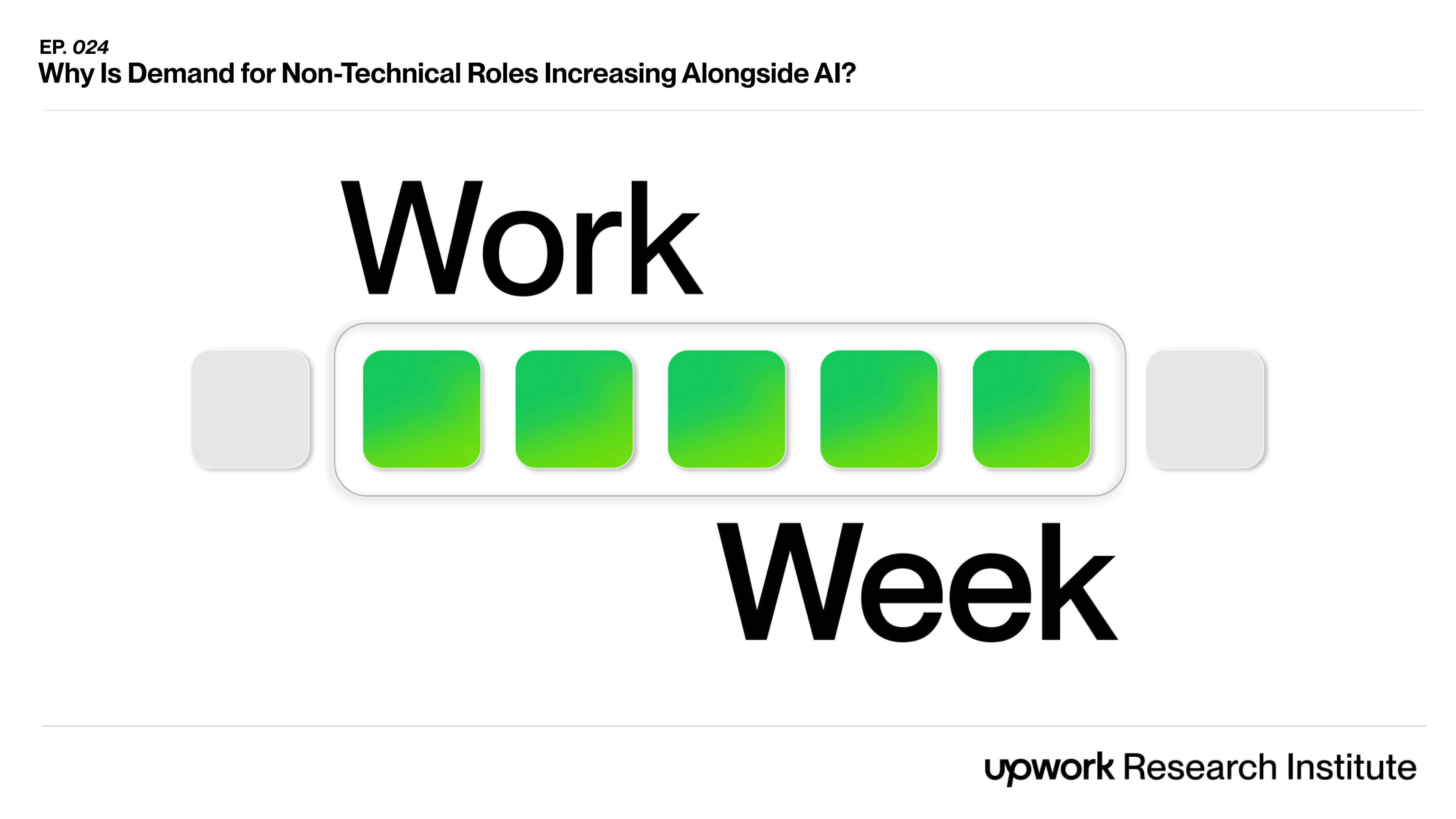
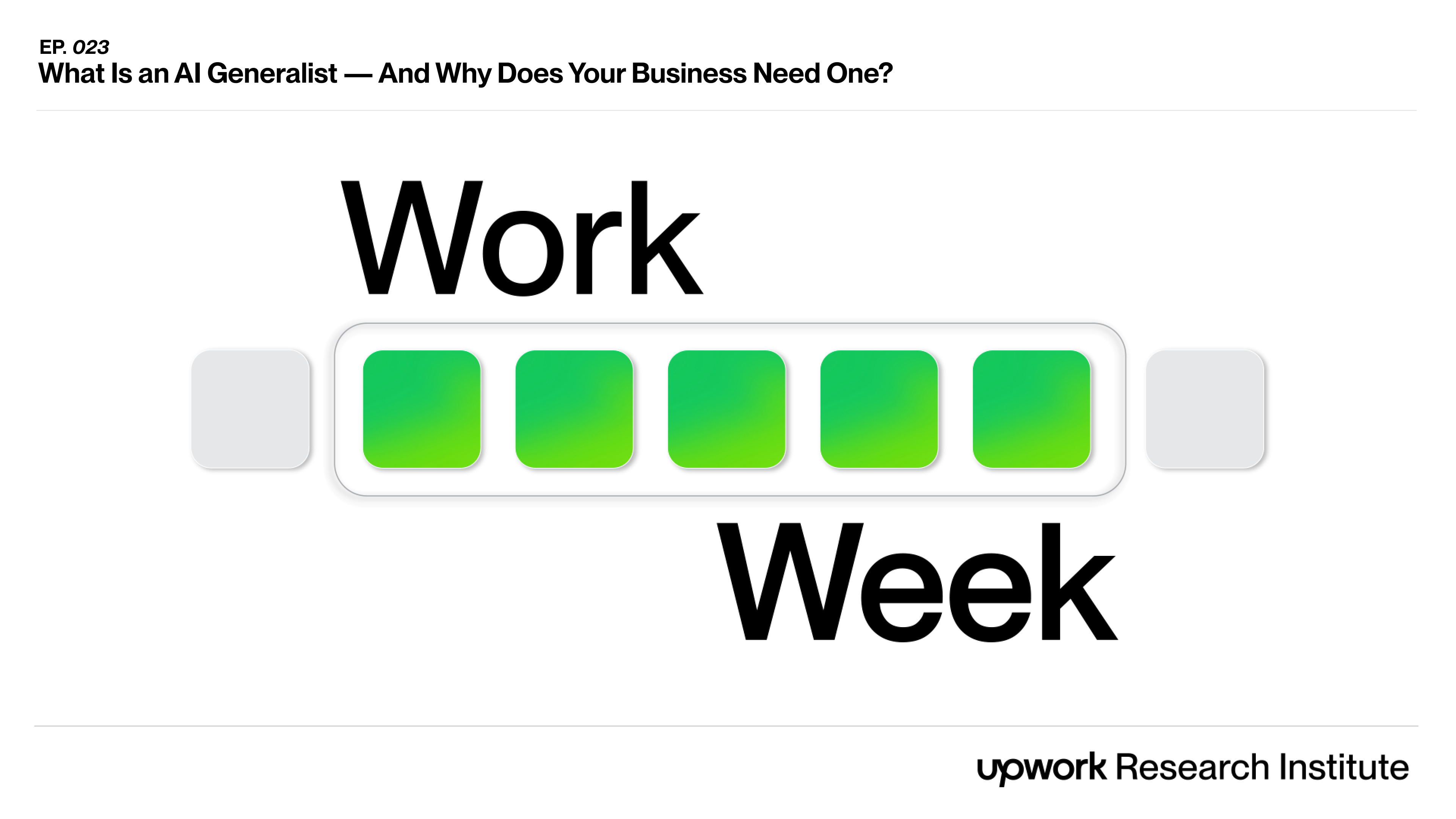
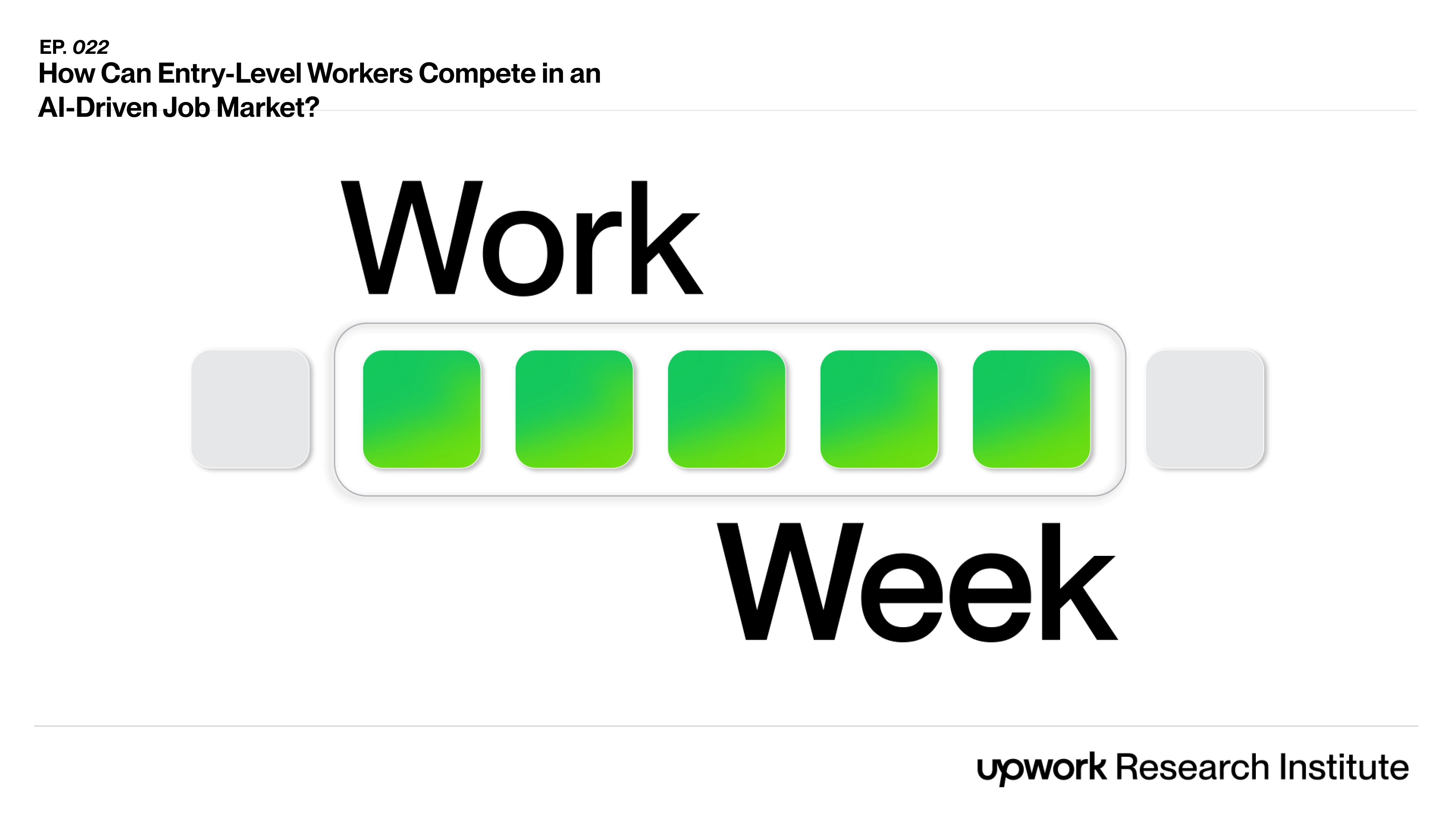

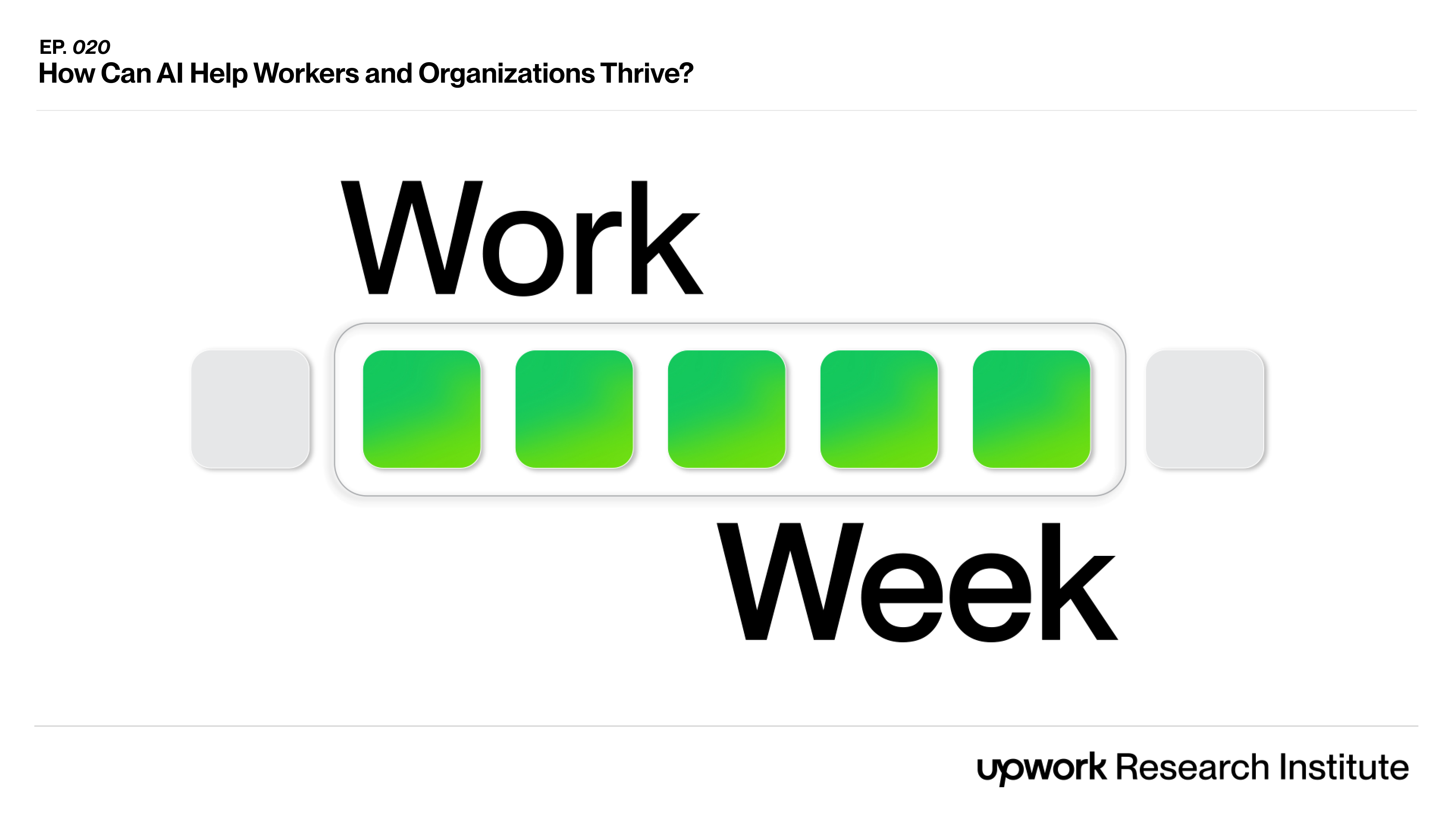
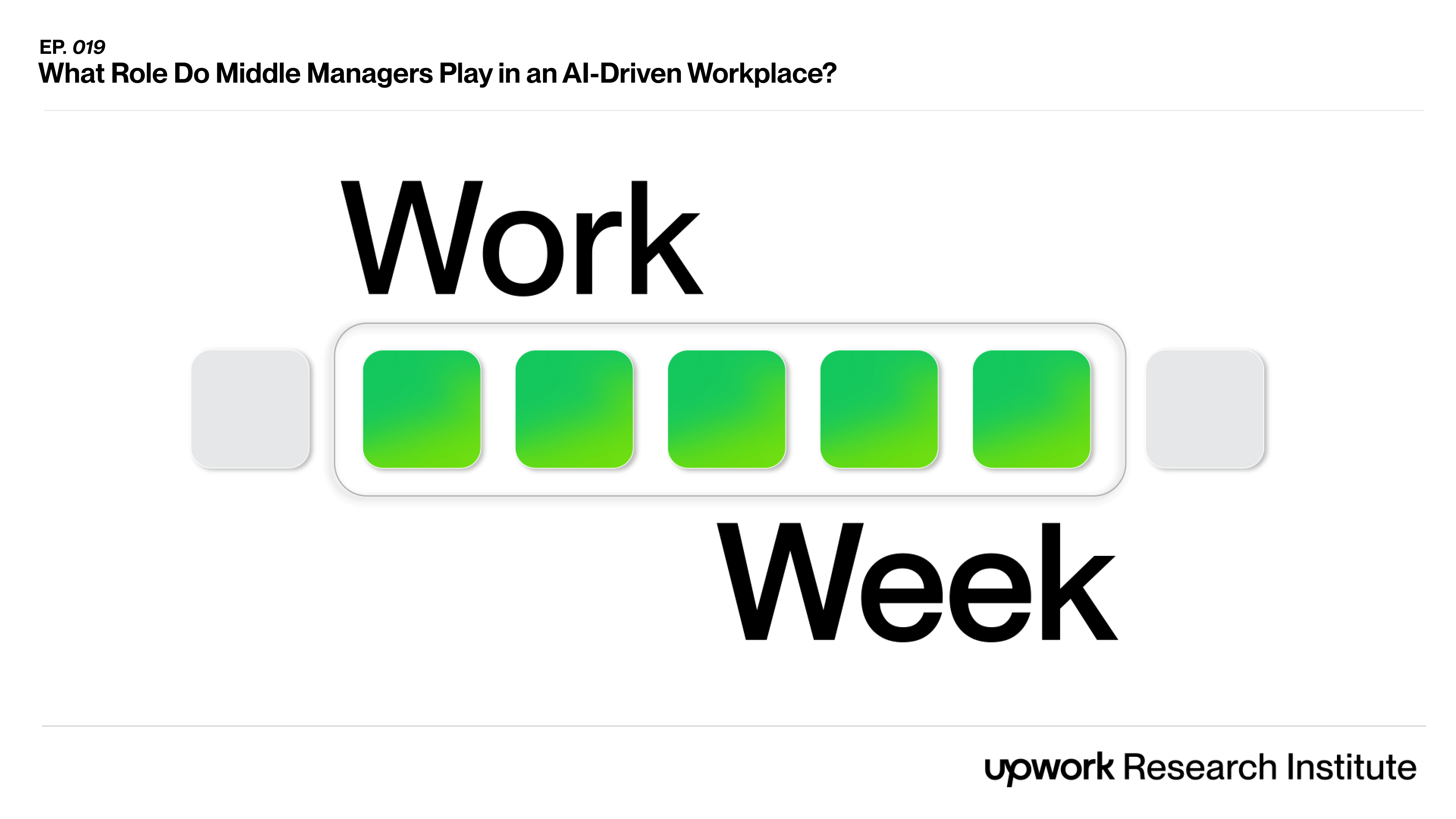
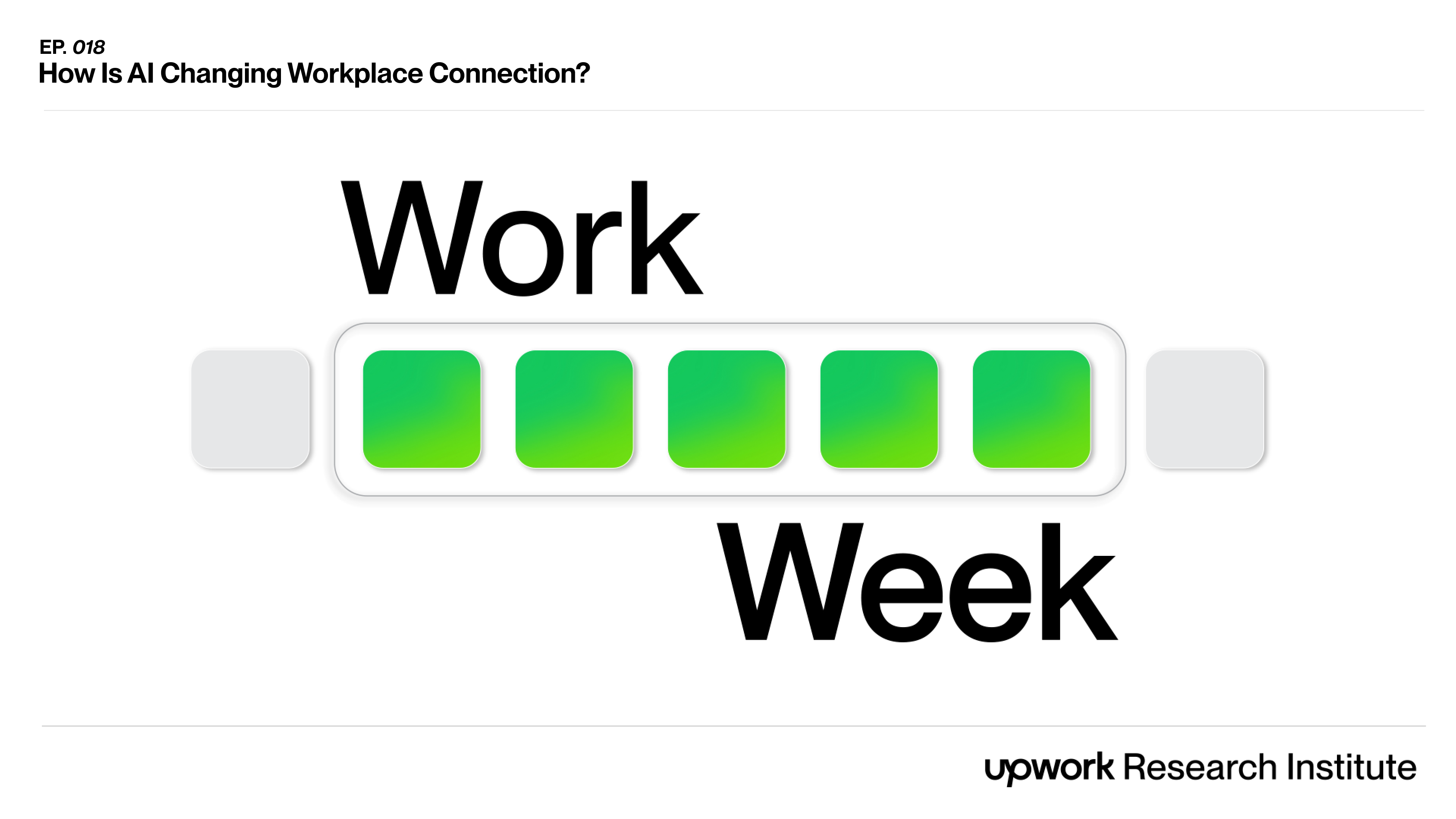

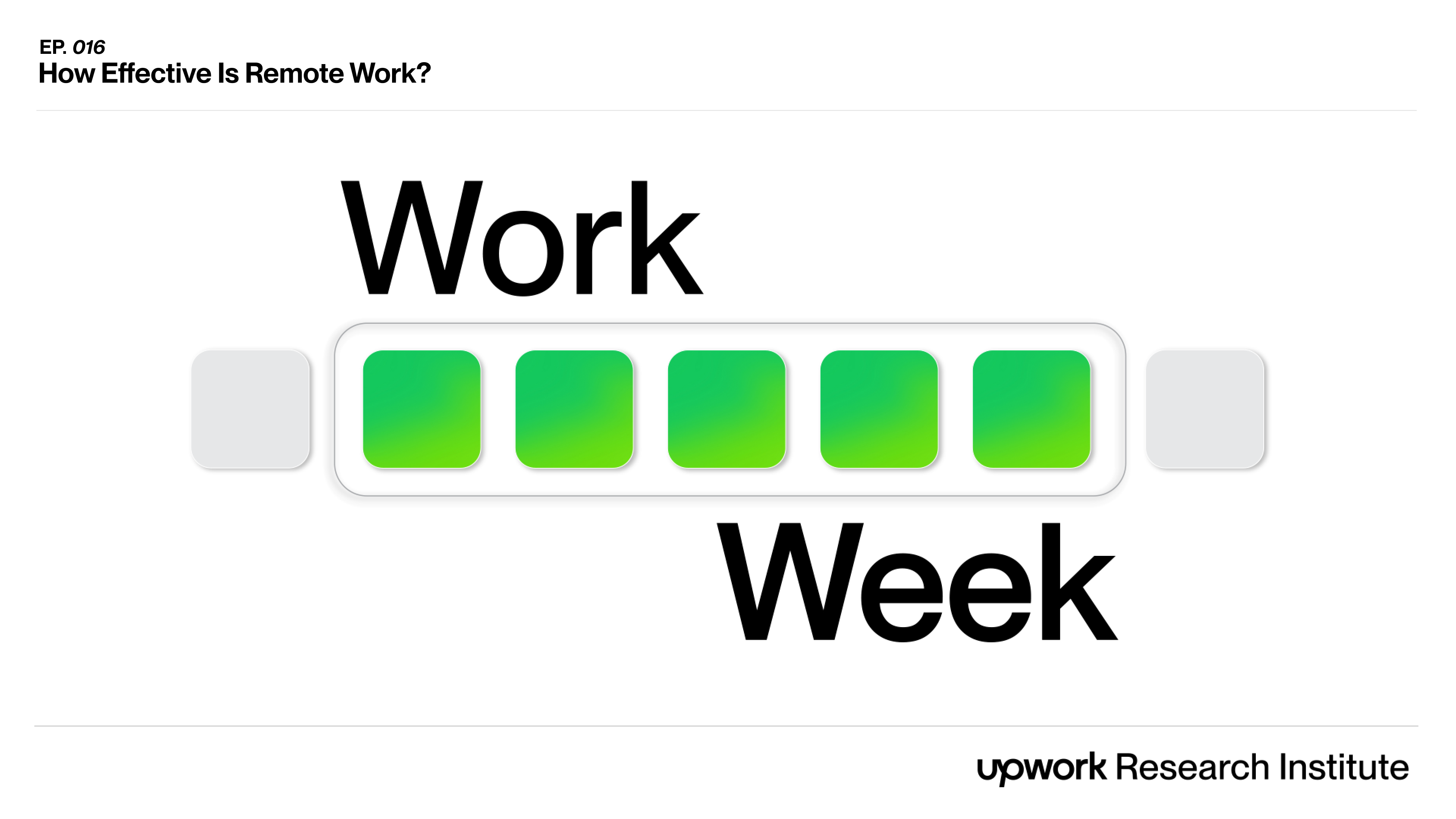
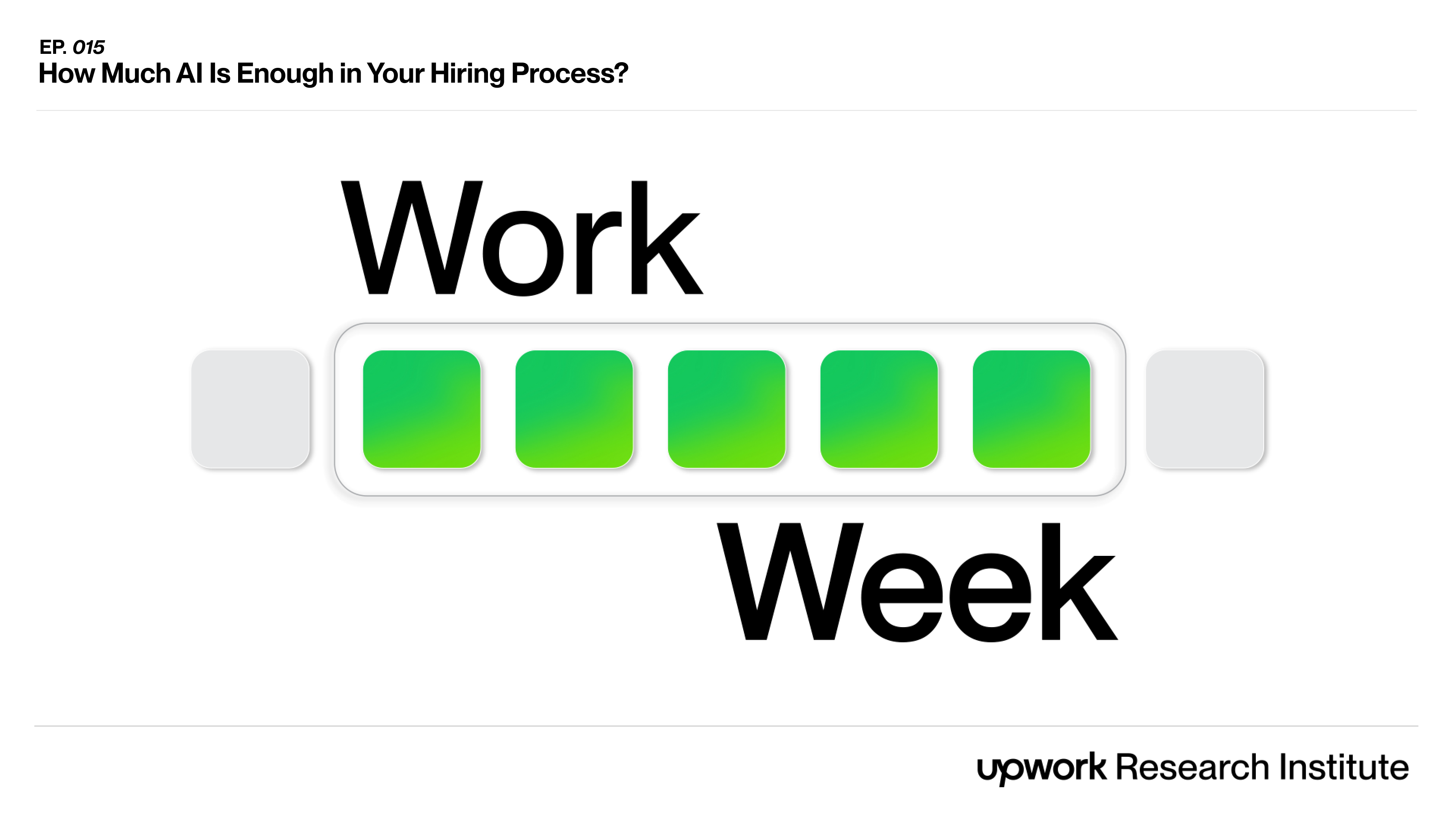

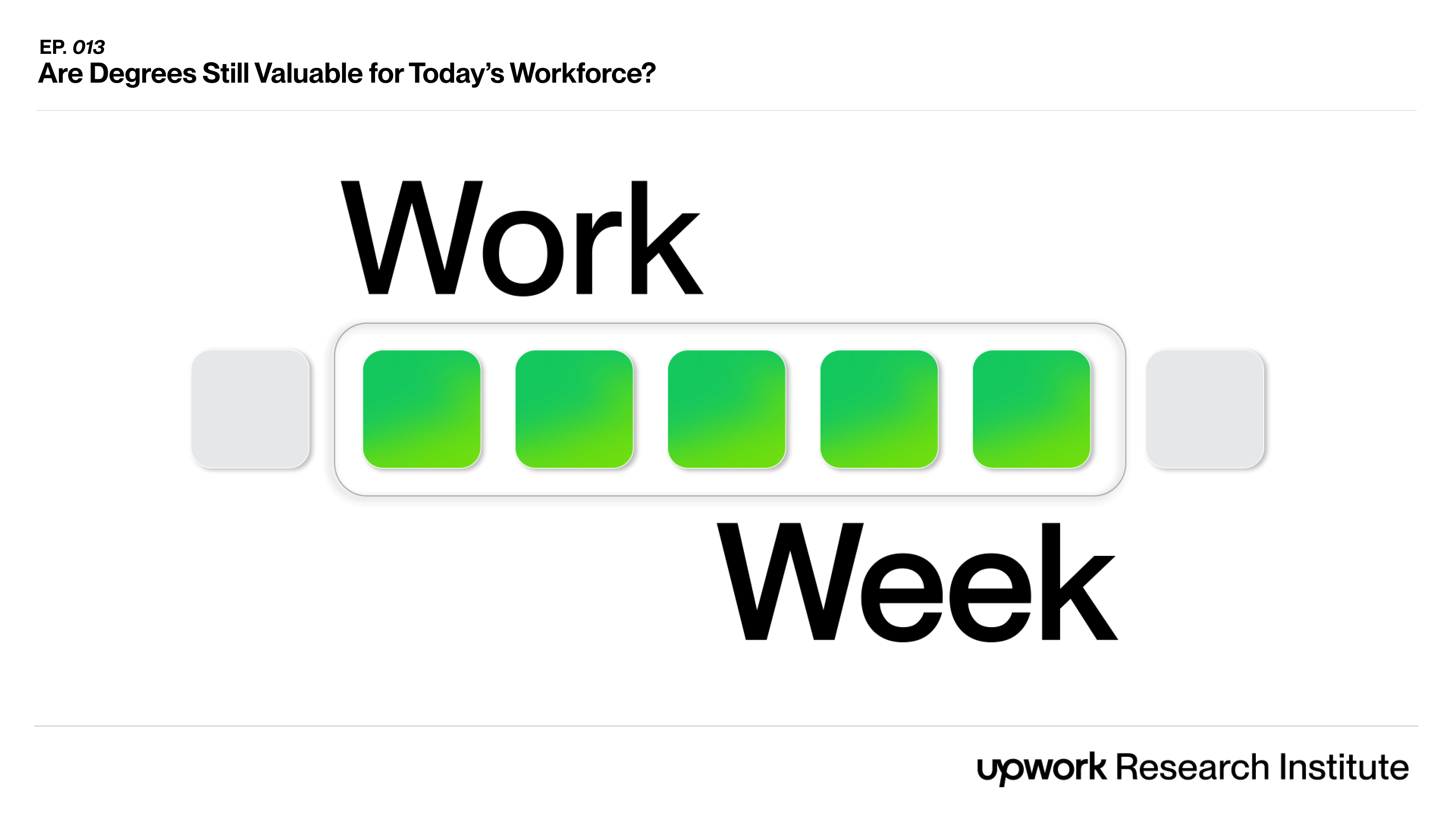
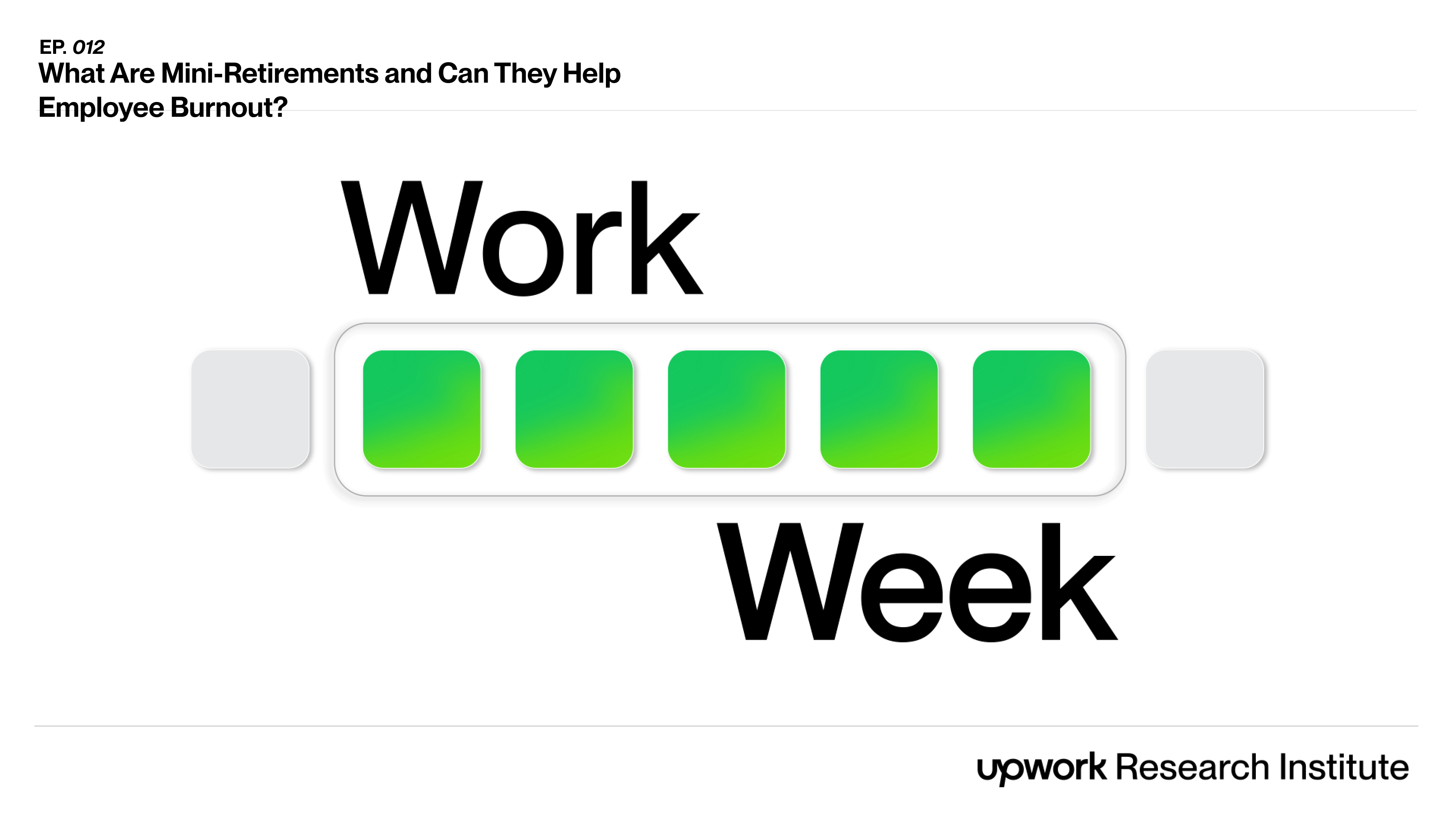
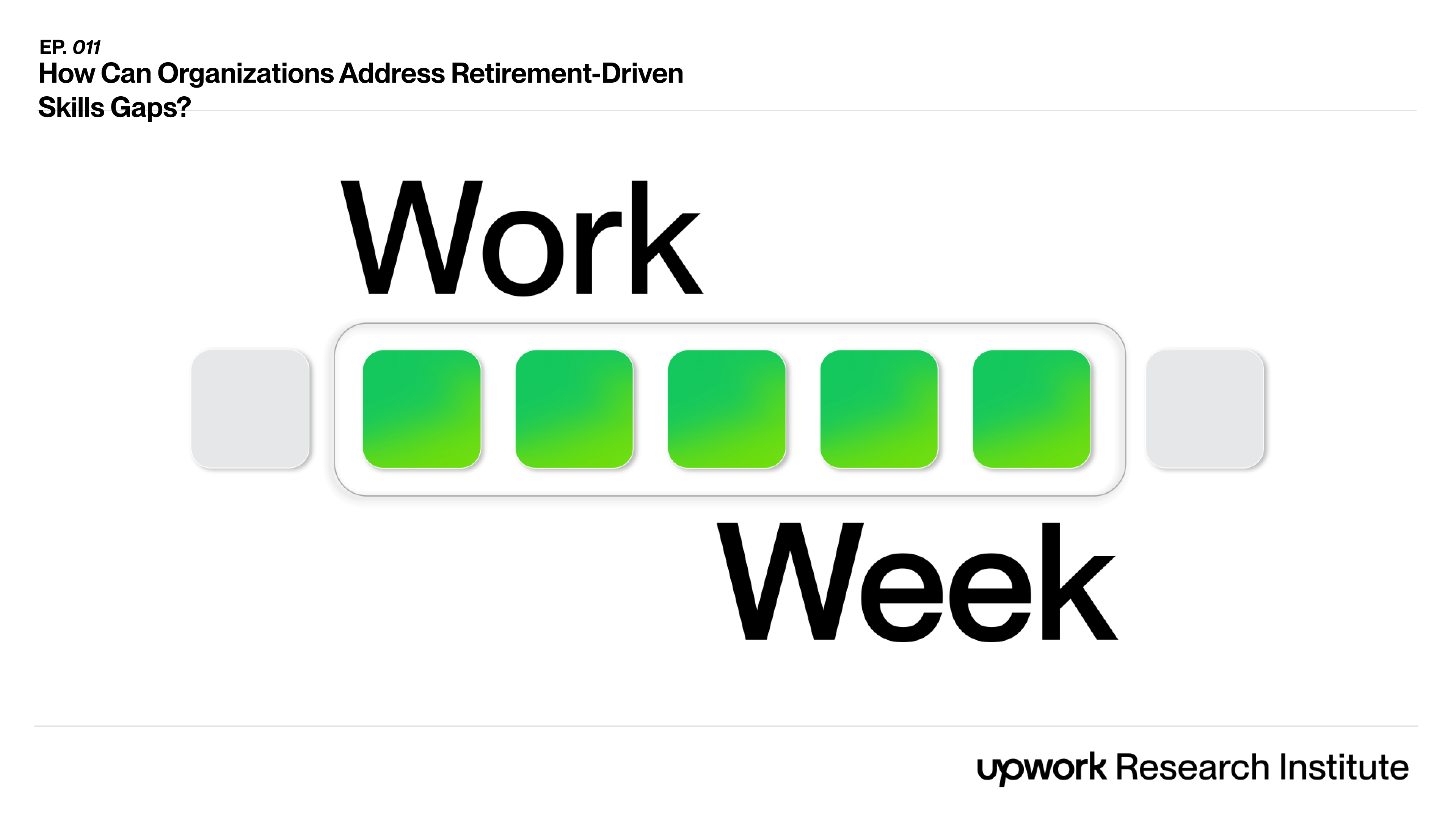
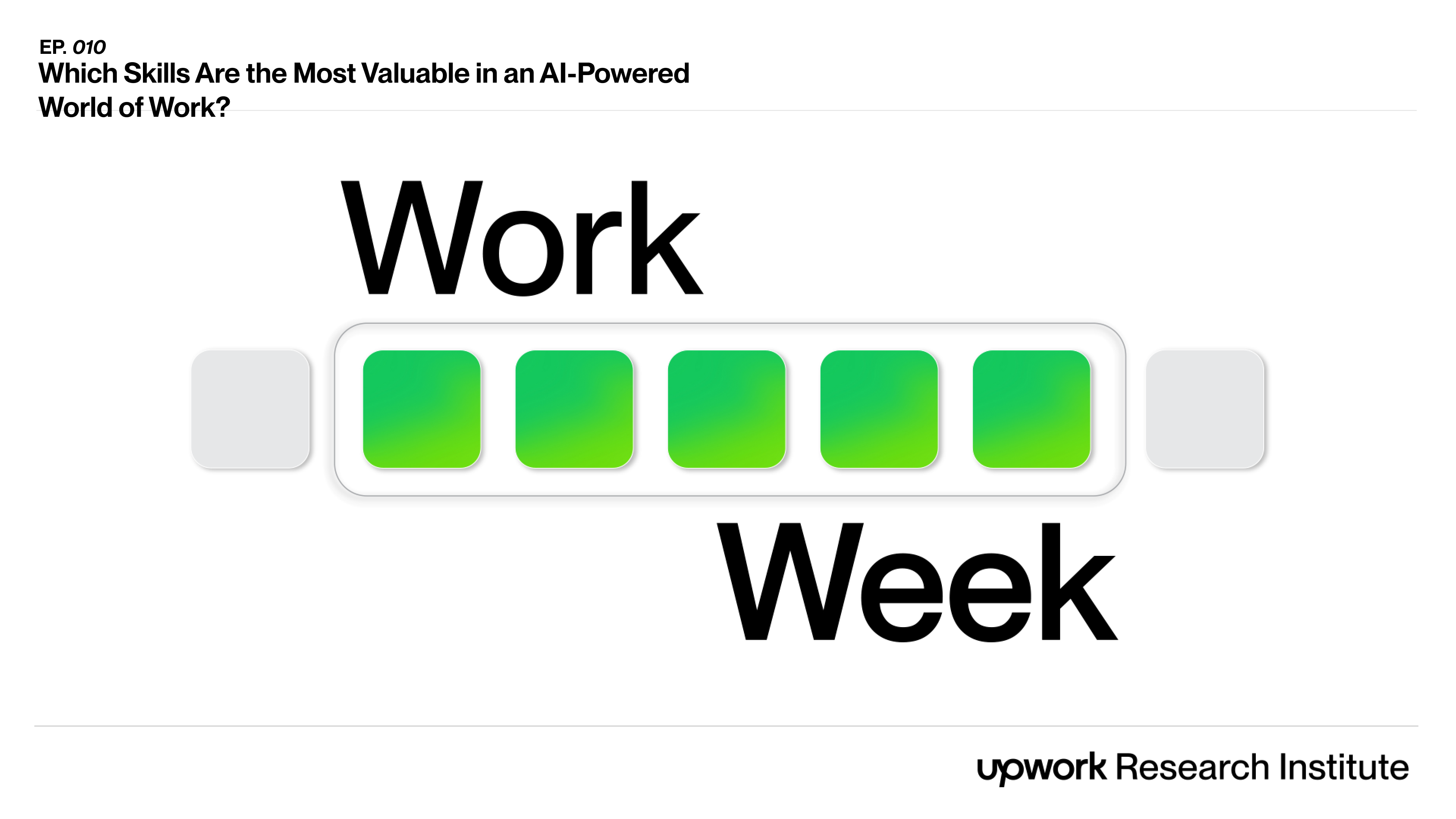
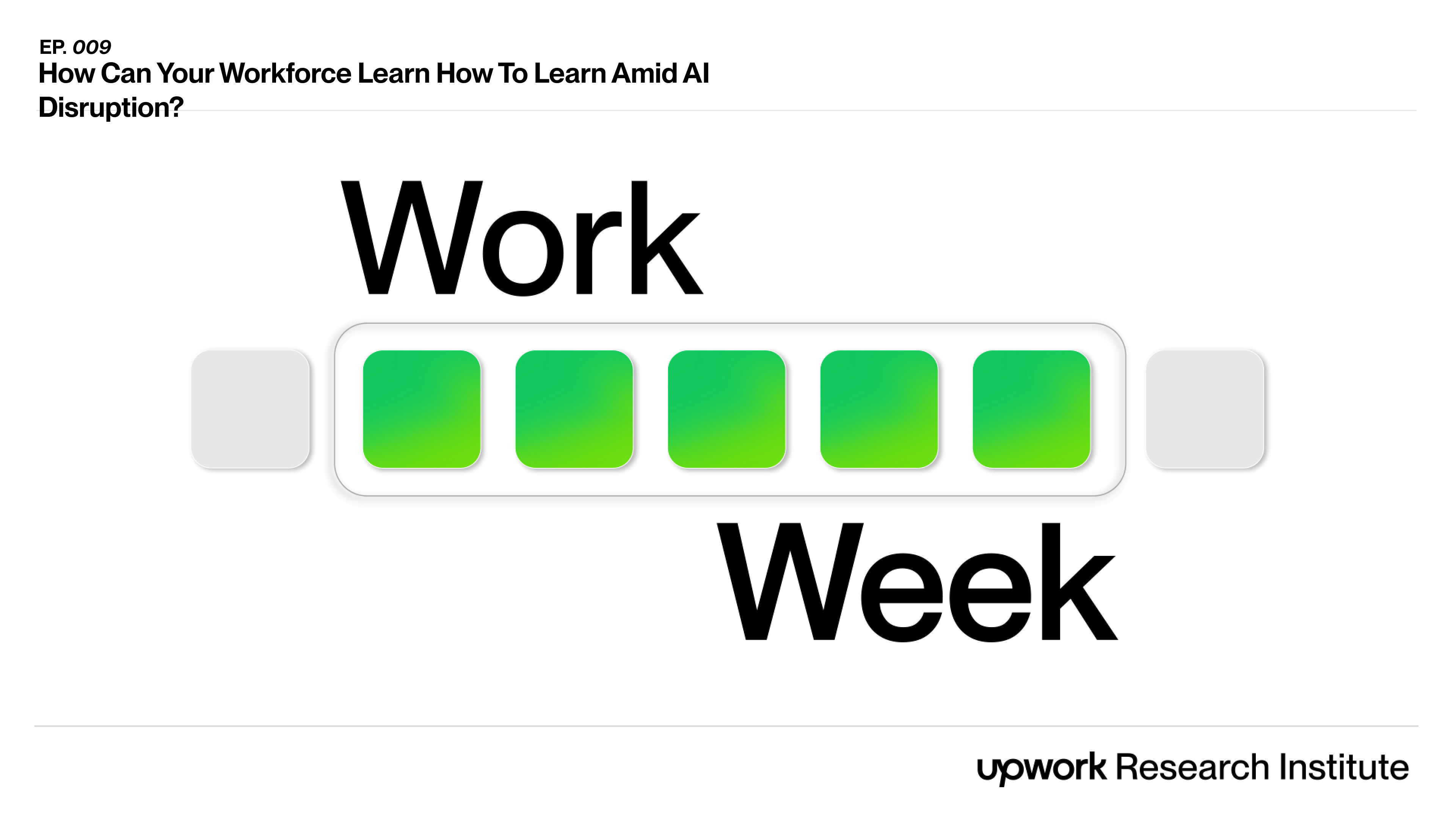
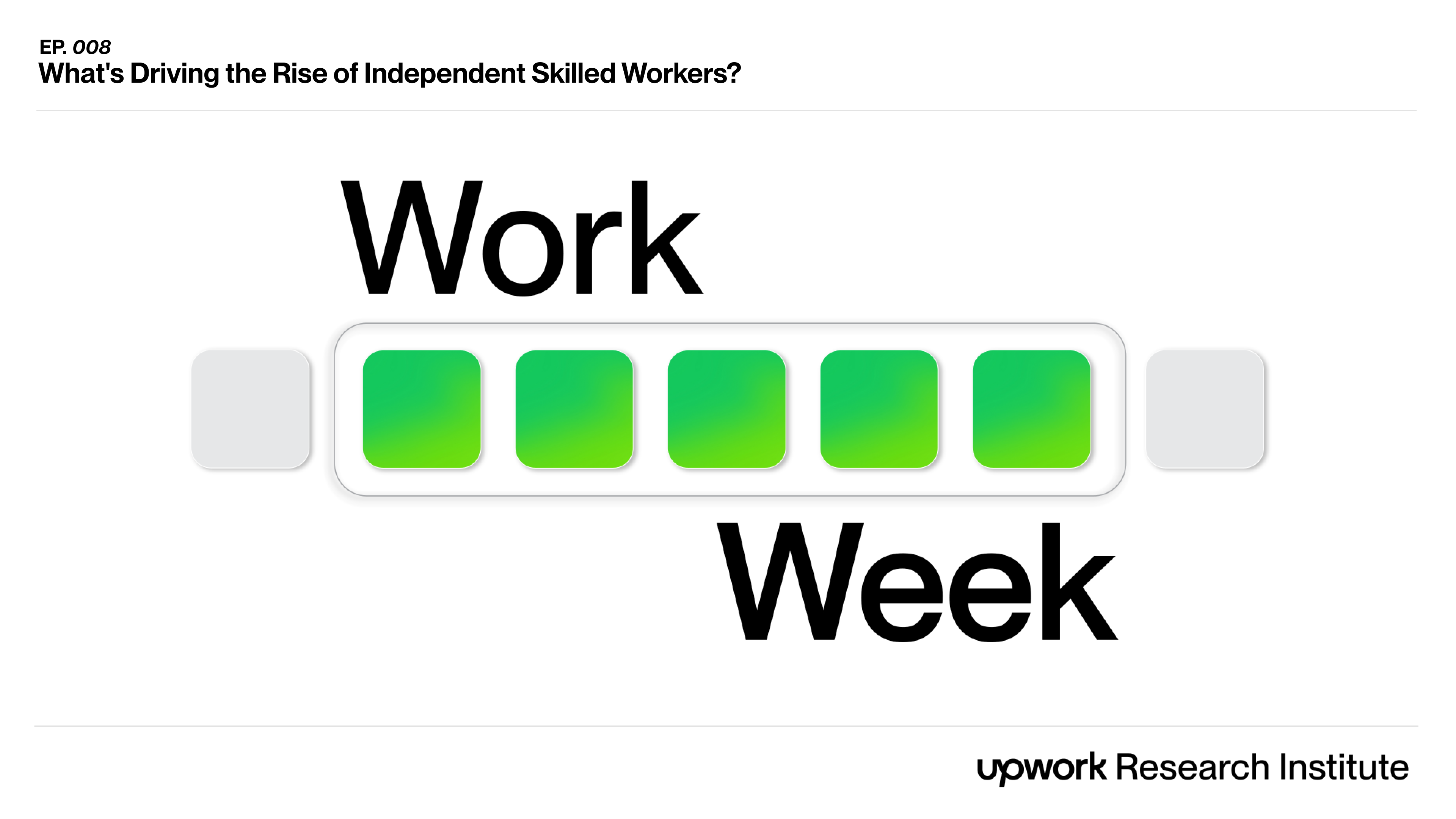
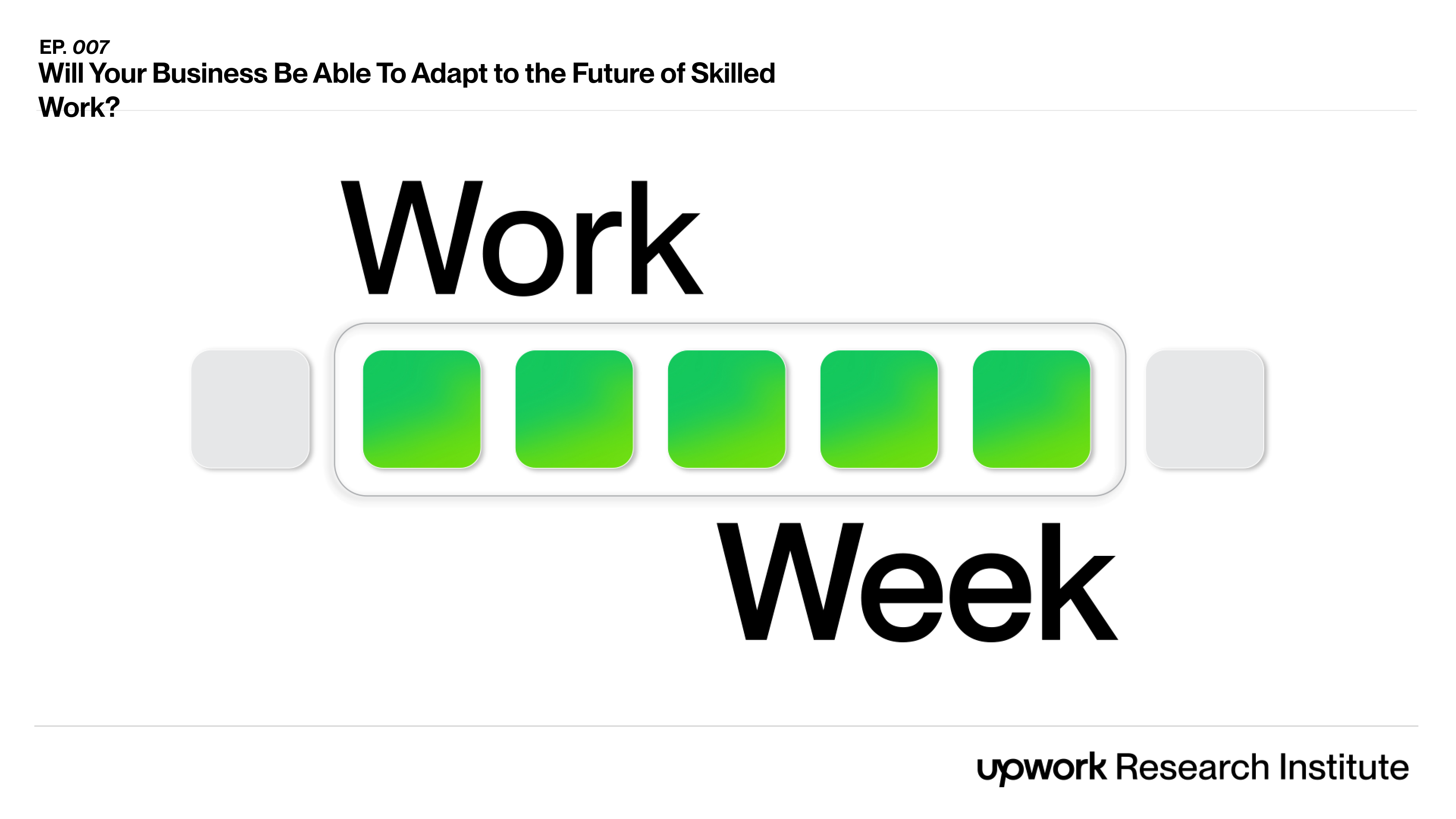
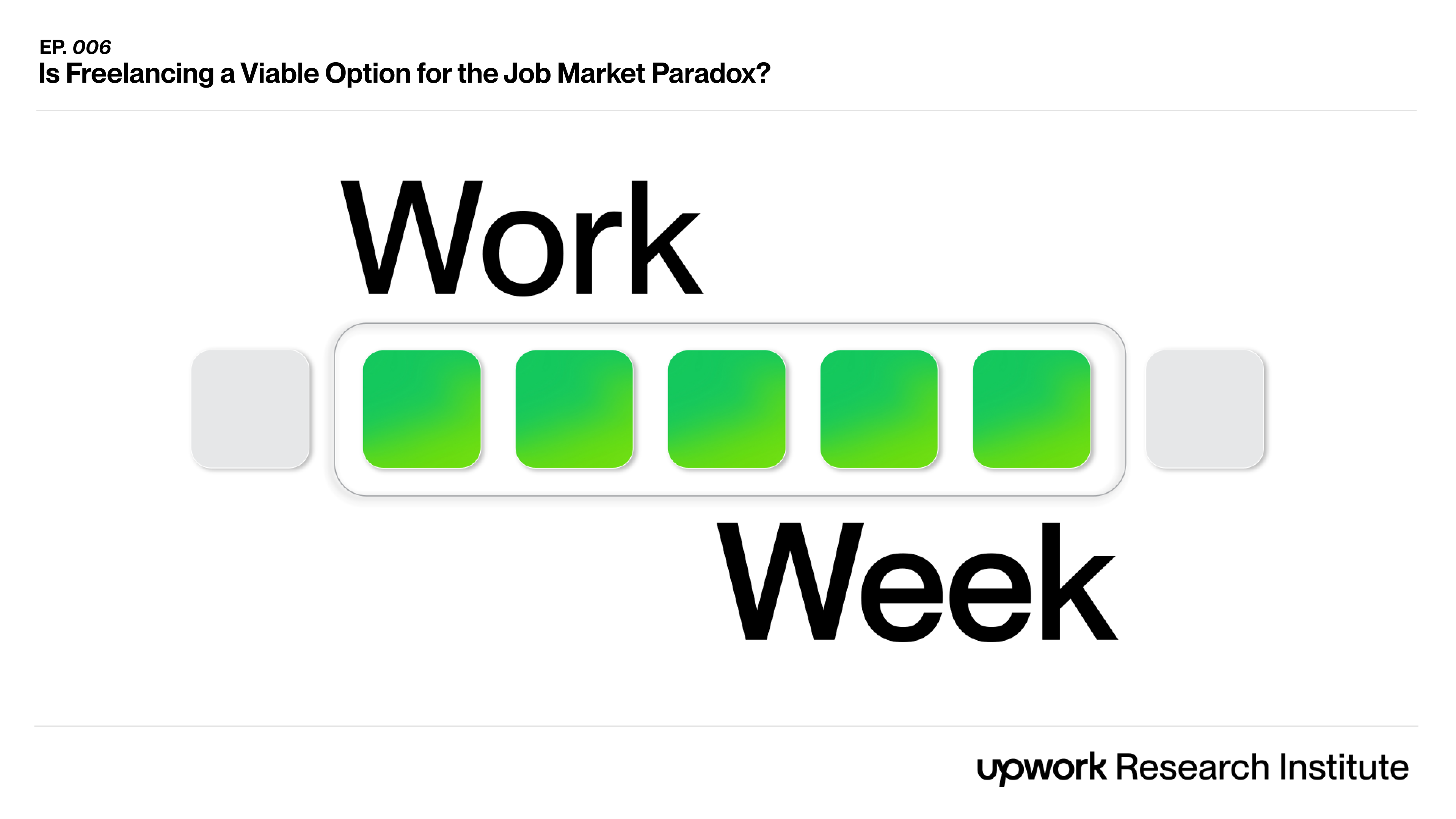
.png)
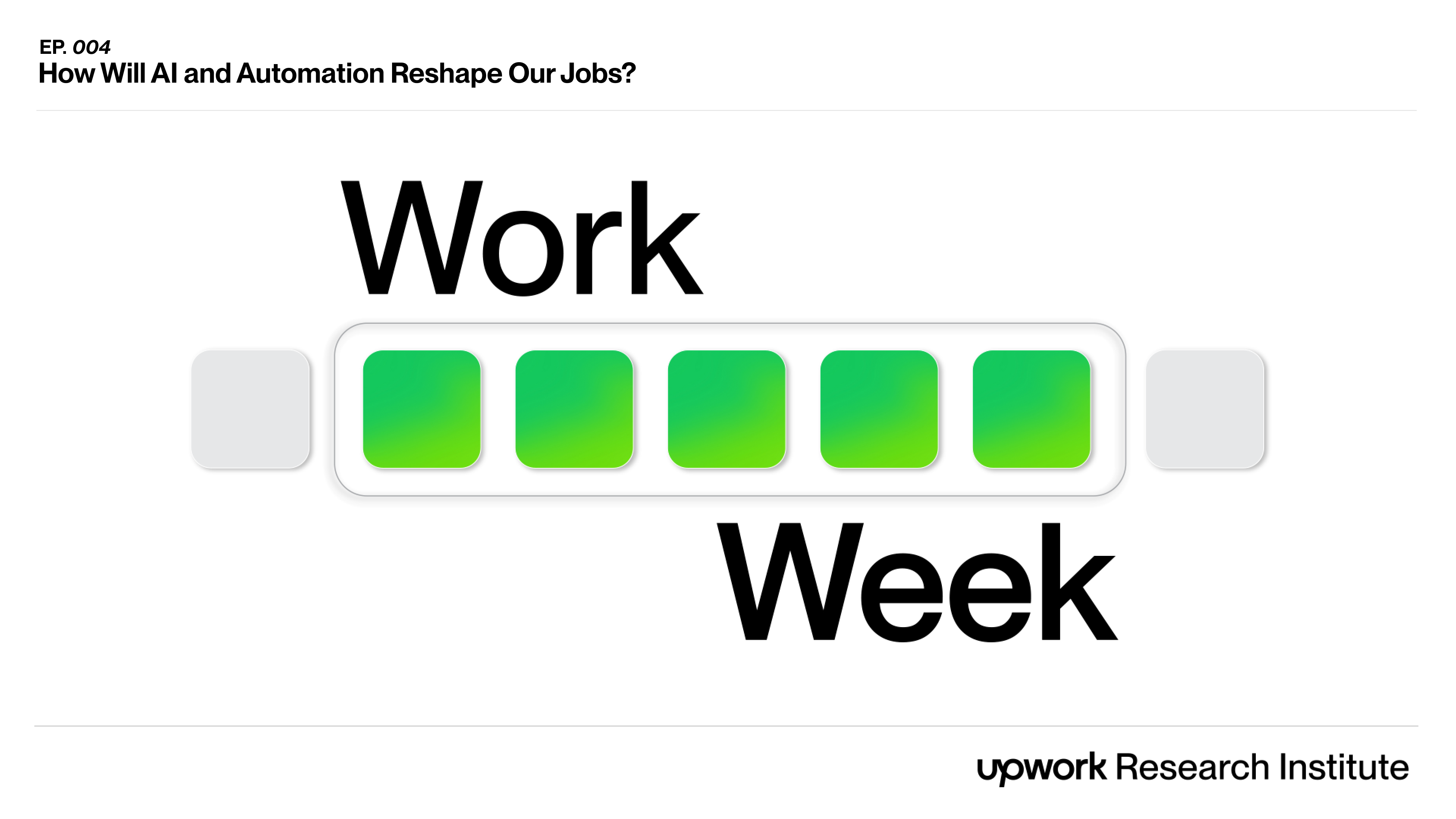

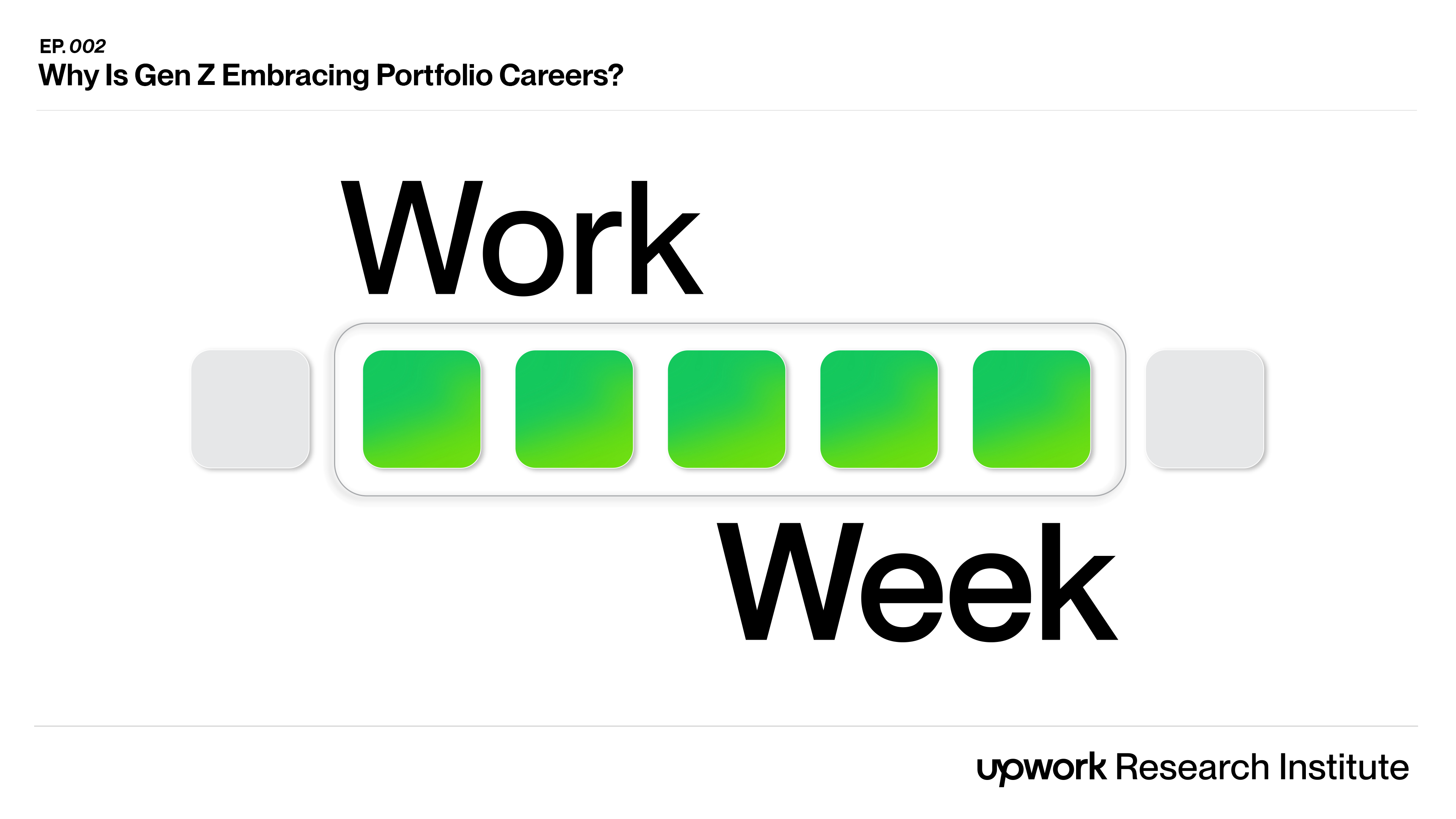
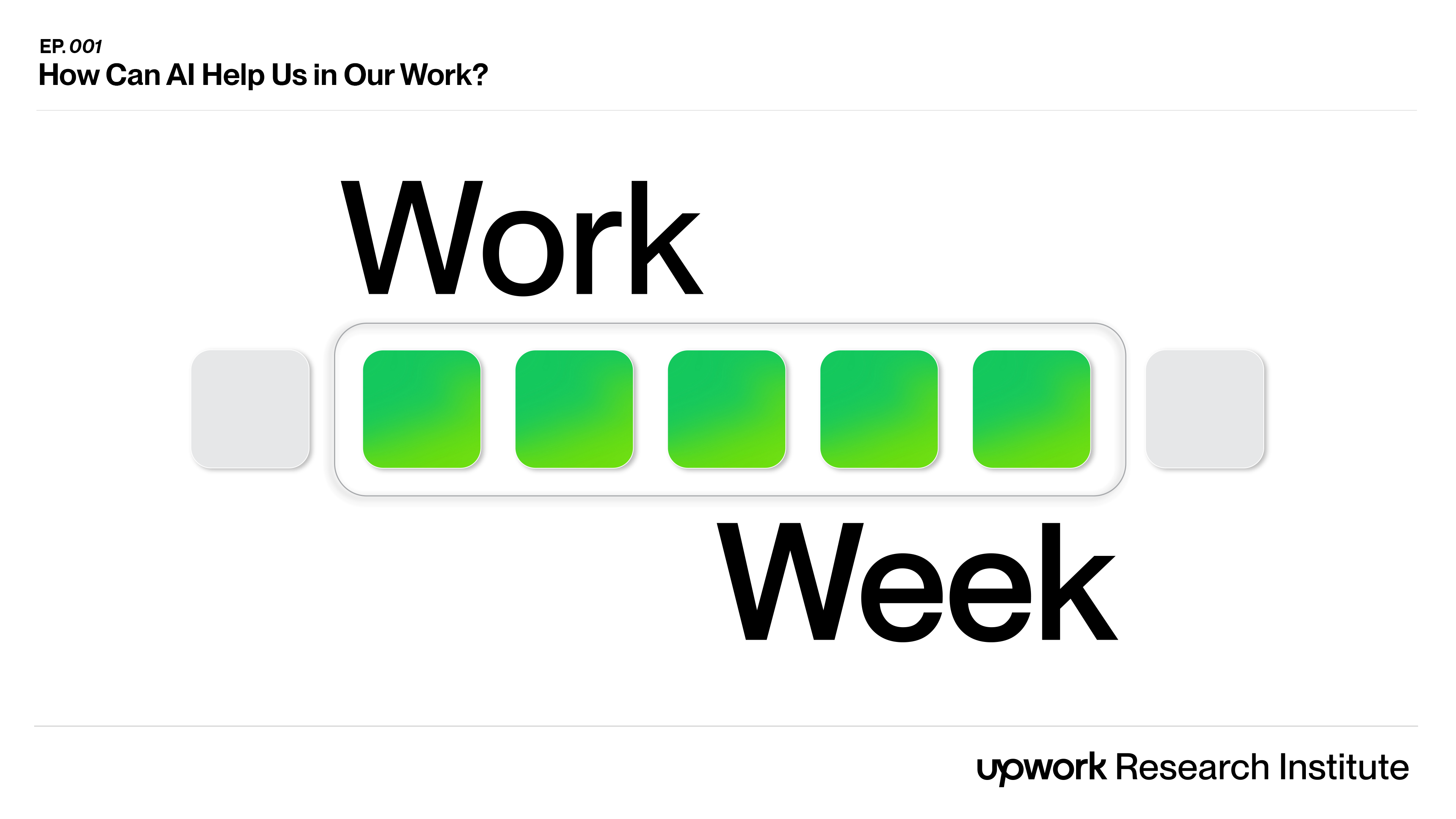
.jpg)